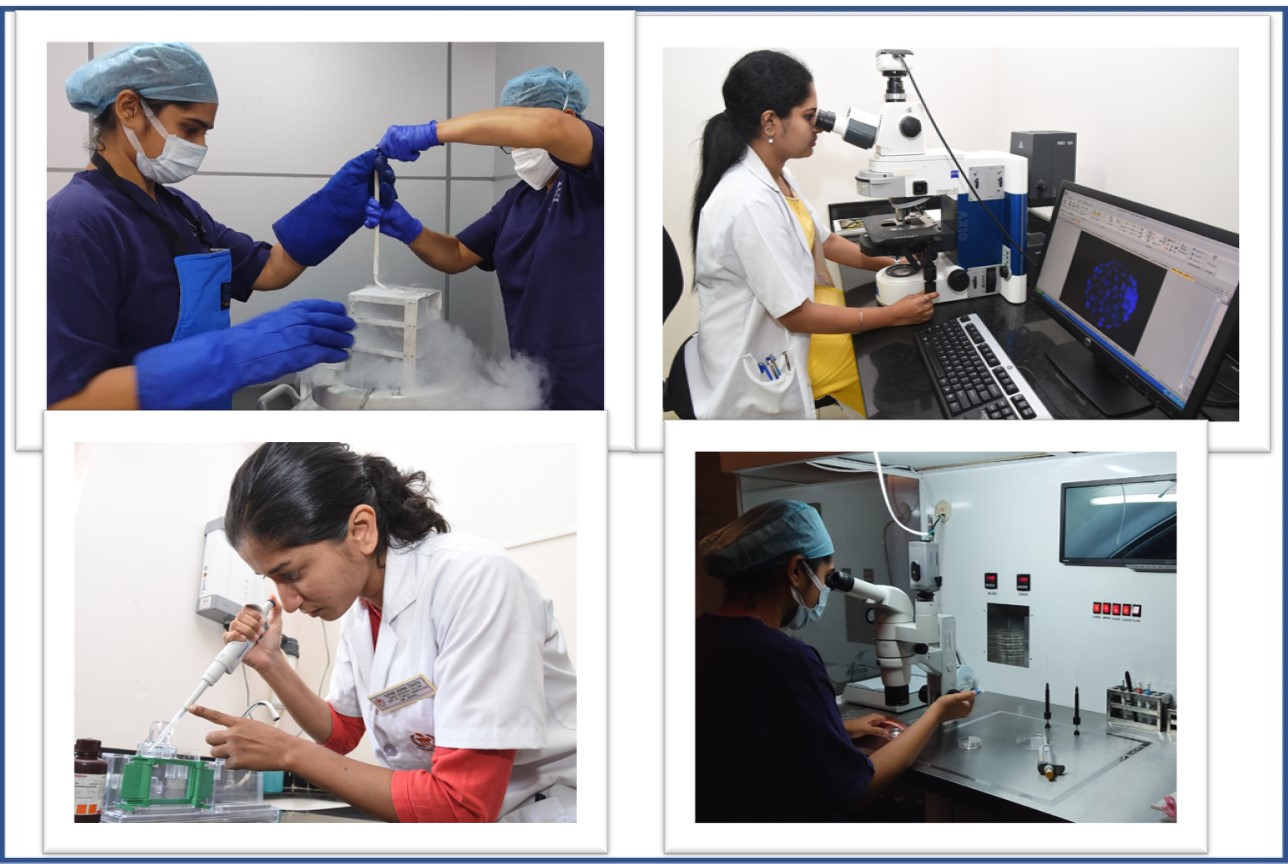Anatomy Labs
Dissection Hall:
The department has a spacious, air-conditioned, and eco-friendly dissection hall that accommodates 300 students at a time. The dissection hall is equipped with plants that absorb the formalin and decrease its level in the air. This has been sterilized every day and formalin concentration will be monitored regularly. The department houses the ultra-modern cold storage facility where 48 cadavers can be stored at a time. It also possesses a Hi-tech Video recording unit for the live demonstration of the specimens and recording. It has extra learning aids like Skeleton, Blackboard, Various anatomical and embryological models, radiology lobbies, and a good number of books in the library. Add to this and to prepare the best quality anatomy models, we have a plastination chamber and a 3-D printing machine.
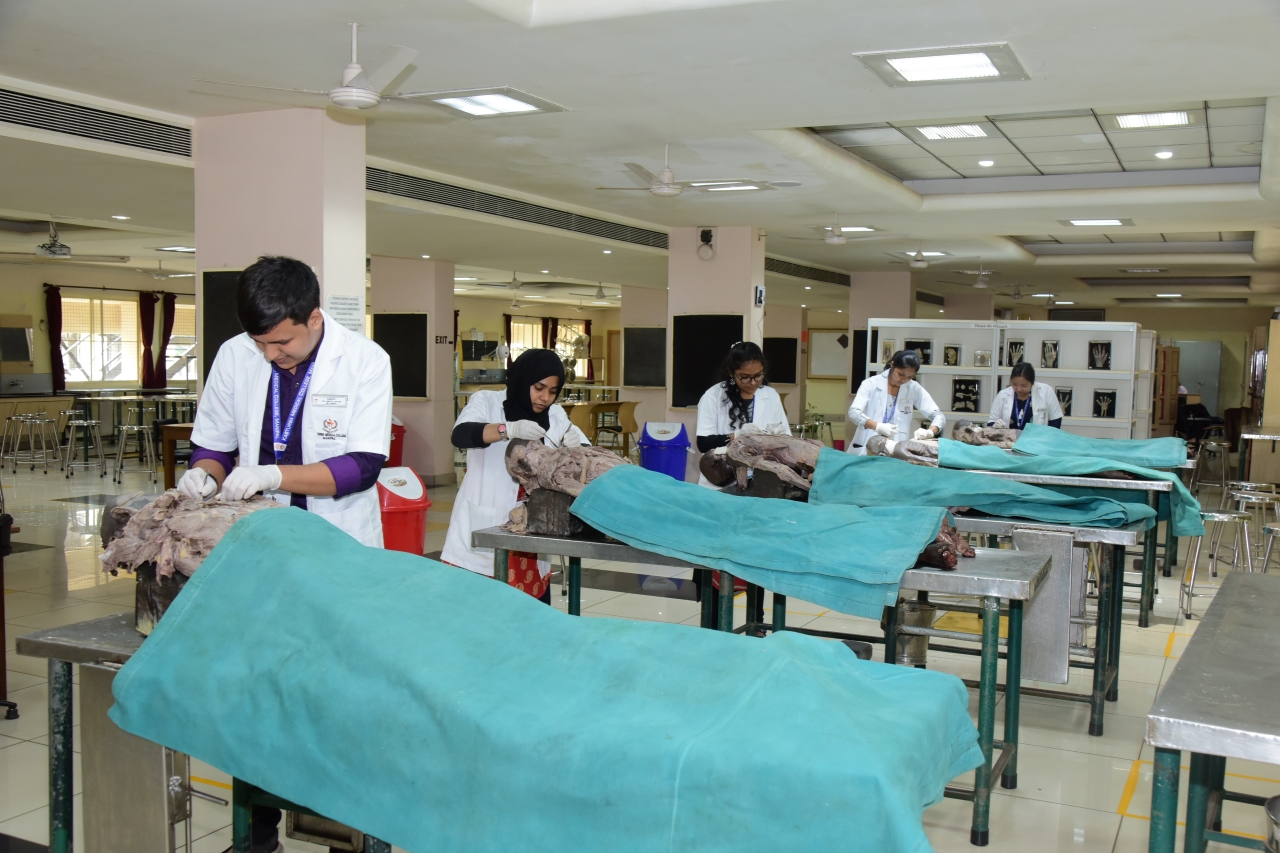
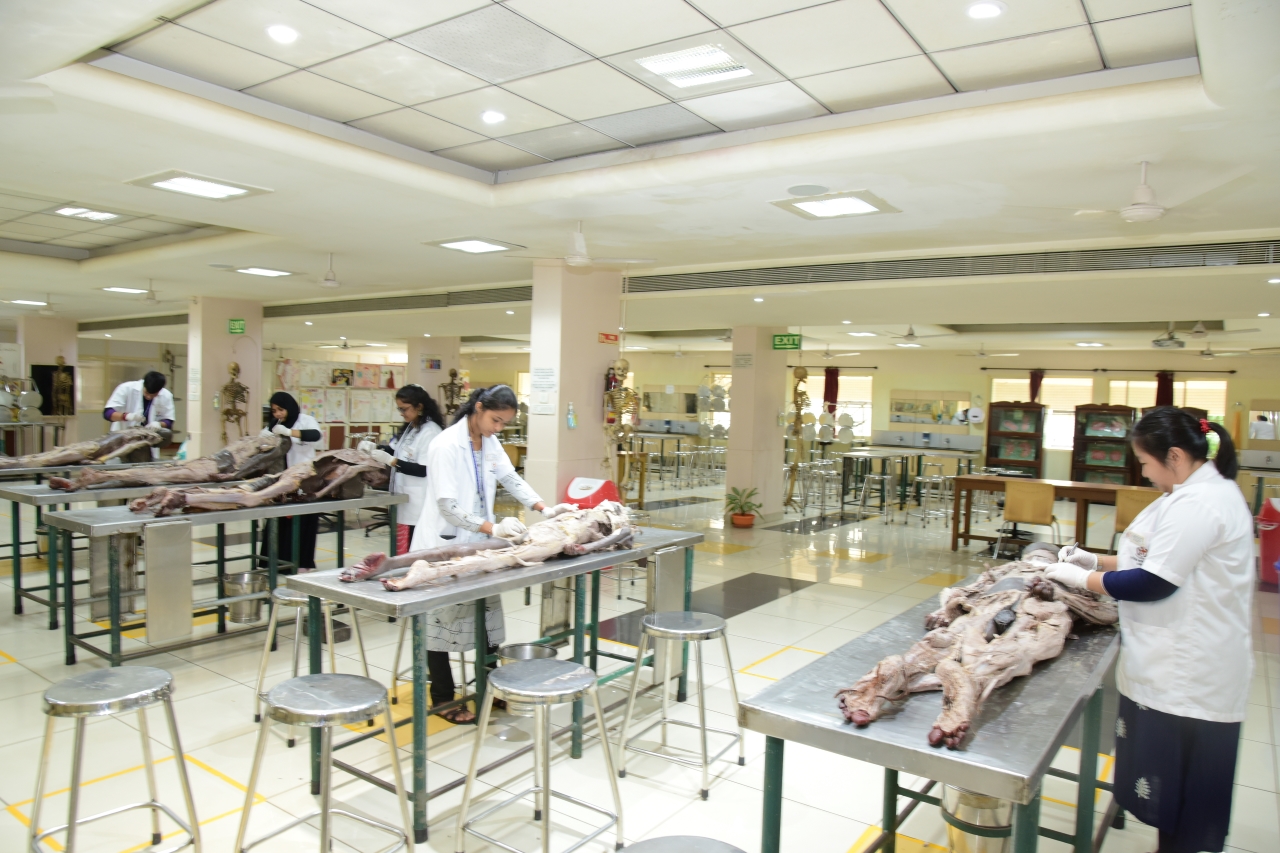
Histology Lab:
KMC, Manipal have been recognized worldwide for our best quality histology slides prepared by us and selling them to various medical colleges across the world. It is well equipped with modern mono-/bi-/trinocular and dissection microscopes and with a seating capacity for 125 students at any point in time. To bring quality to histology education, we have an LCD projector with a camera attached to an advanced microscope for student's preview and discussion. Attached to the lab is the wi-fi-enabled computer room to access e-journals and books for advanced study.
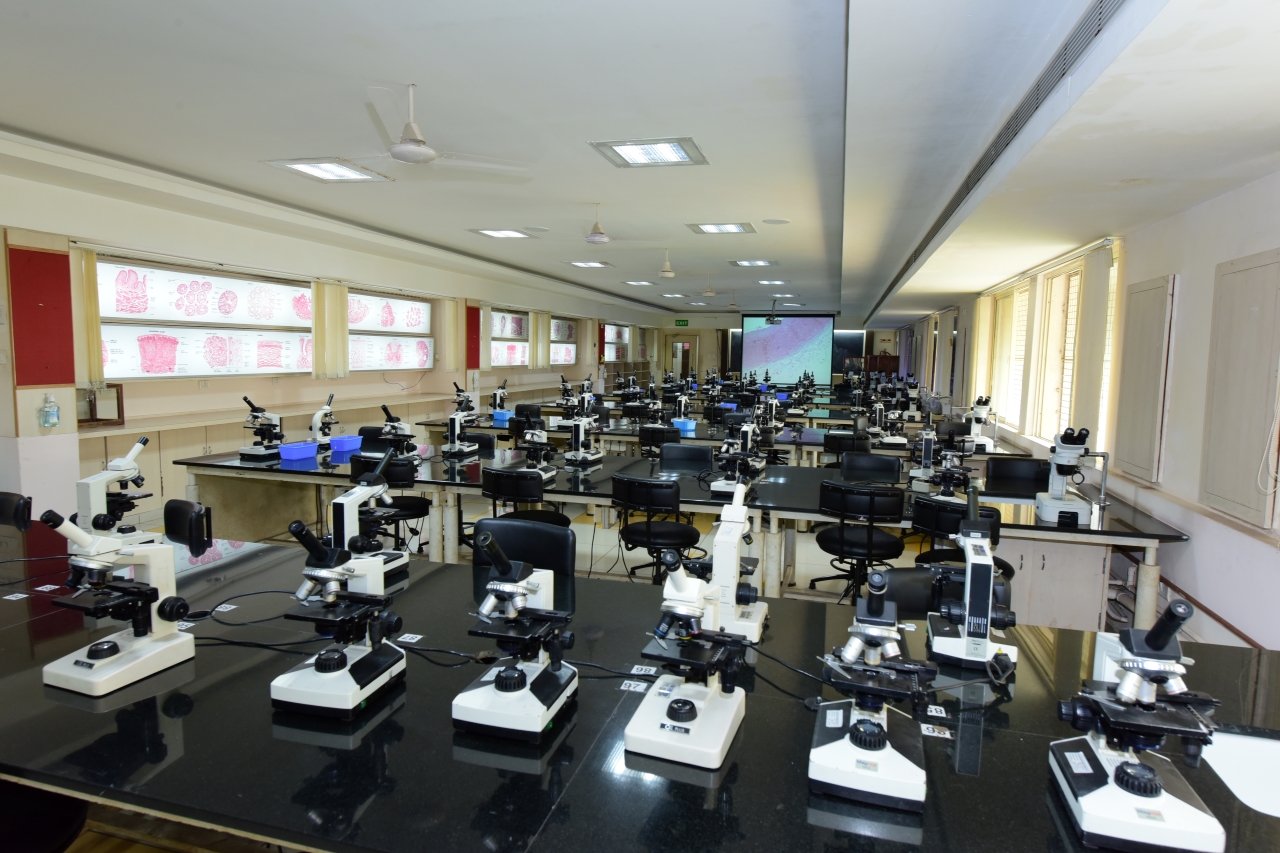
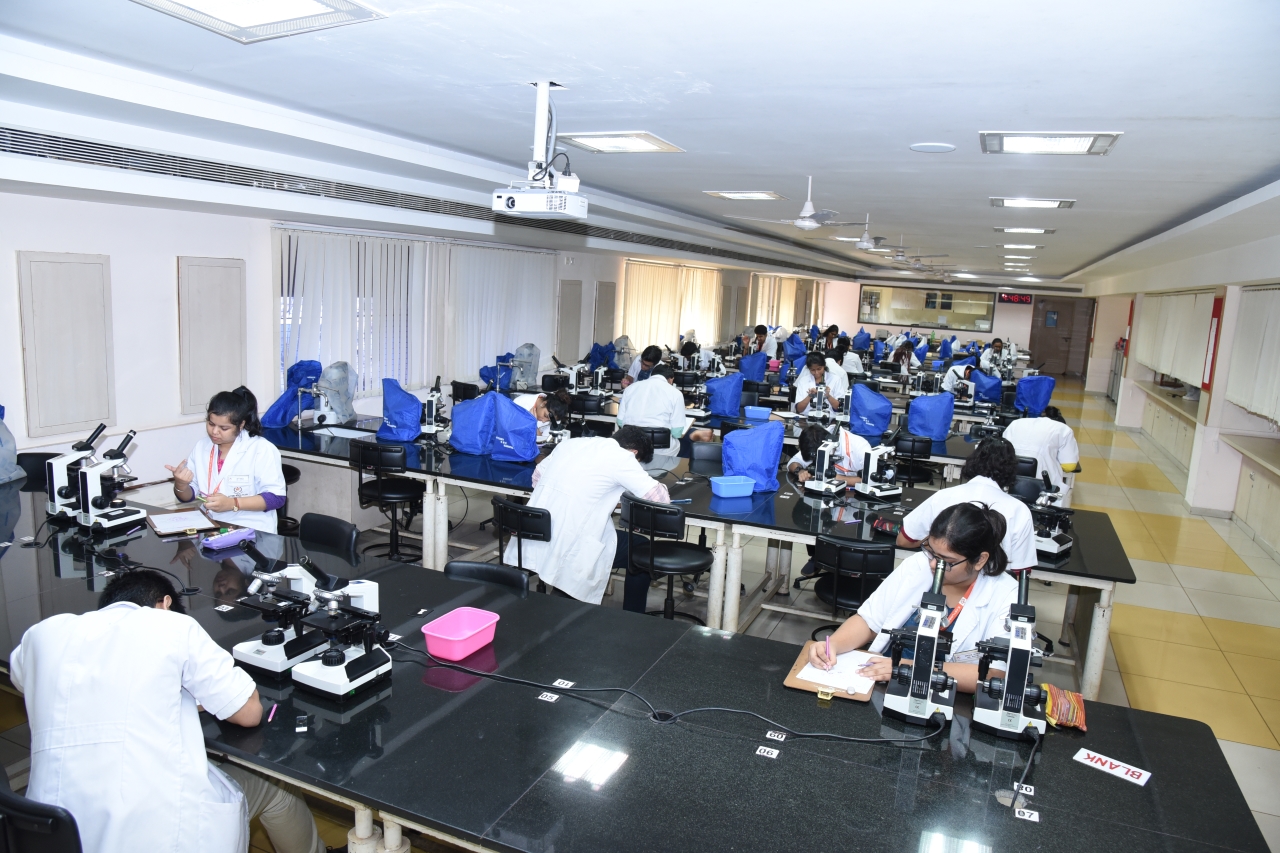
Anatomy Research Lab:
The Anatomy cell culture research lab is almost a 75 square meter, well-ventilated, well-equipped facility. We have the following research facilities in our lab - Cell culture hood, incubator, RT-PCR machine, centrifuge, refrigerator, freezer, liquid nitrogen, ice crusher, autoclave, Microscope, pipette to list a few. The research infrastructure is open to the students and staff of MAHE between 9 AM to 5 PM, where they can perform basic cell culture, DNA and RNA extraction, gel electrophoresis, gel documentation, and Immunohistochemistry.
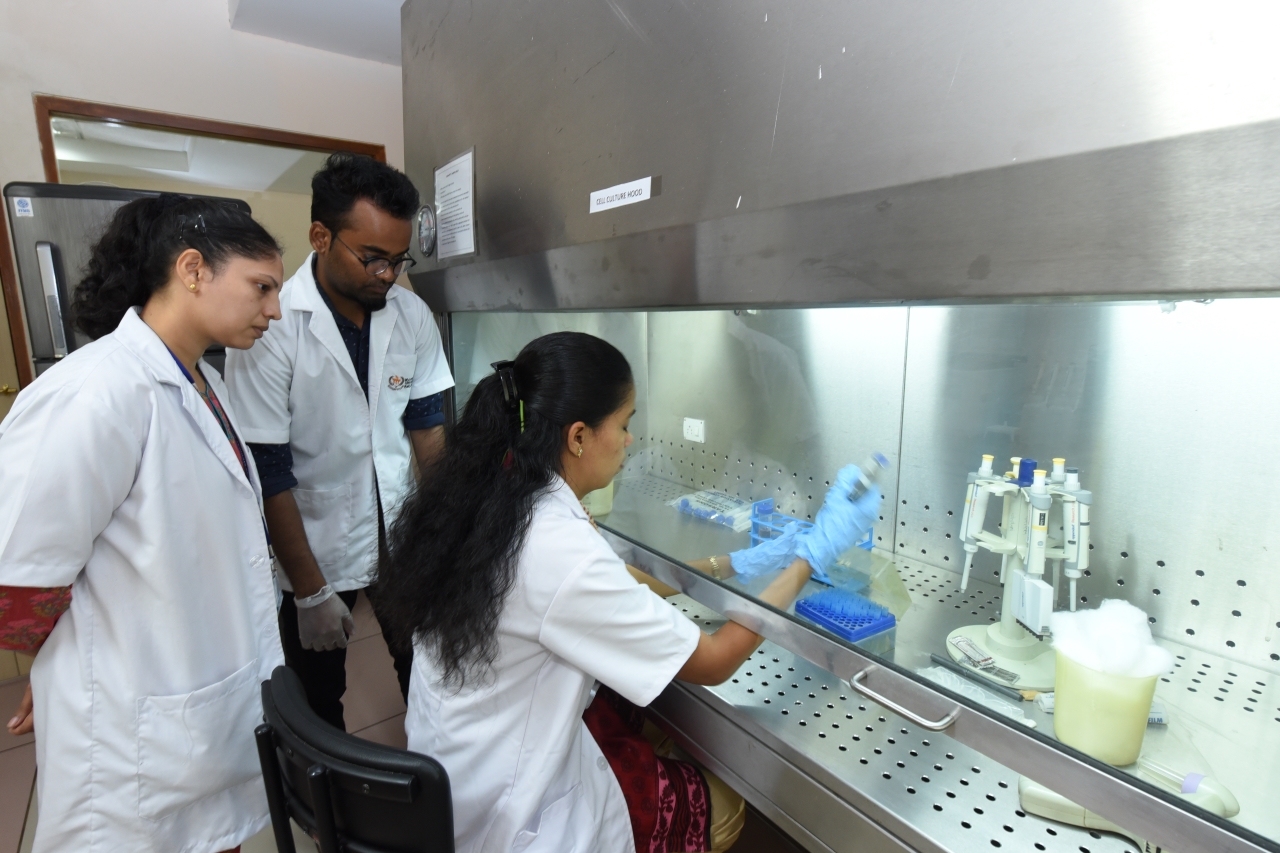
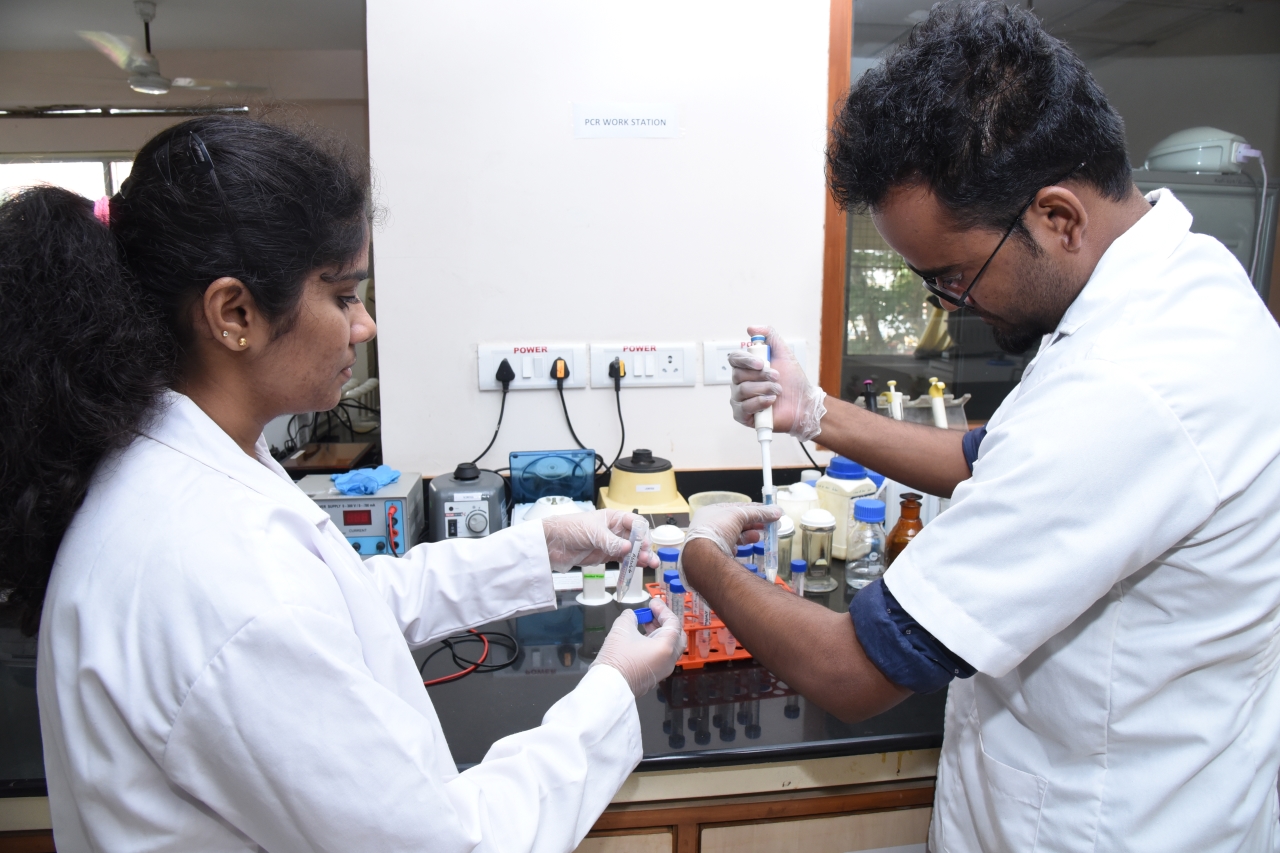
Physiology labs
Clinical Physiology Lab:
Clinical physiology laboratory helps to form a bridge between basic physiology and clinical specialties by providing a safe environment where students receive hands-on training and instruction in clinical examination including attitude and communication skills. The students are taught in small groups and peer learning is encouraged. The lab is equipped to demonstrate and train MBBS and post-graduate students to record ECG, clinical spirometry, EMG, etc.

Haematology Lab:
The hematology lab is engaged in teaching and training MBBS and postgraduate students in basic & clinical hematology and research activities. The lab is equipped with self-illuminated para focal high-quality microscopes. The instructor table also has a camera-aided demonstration microscope which also allows a wide range of image analysis and quantification. This facility is presently utilized for PG thesis projects, faculty research both within the Institution and between the Institutions of MAHE.

Research Lab:
ERP Lab: The Manipal Axxonet Human Neurophysiology Lab was set up with an industry collaboration with Axxonet System Technologies, Bangalore. The Neurophysiology lab is equipped with a 32-channel EEG recording system and Stimulus delivery software- BESS. At present, there are two Ph.D. students working under funded projects. The Lab imparts PG training for EEG and Visual evoked potential (VEP) recordings.
AFT Lab: The AFT lab is equipped to record Autonomic Function Tests including Heart rate Variability. The lab is used to demonstrate autonomic function tests to first-year MBBS students as well as to impart training for postgraduate students. An MD thesis project is in progress in collaboration with the Department of Medicine. The lab also aids in diagnostics with cardiac autonomic neuropathy (CAN) function tests.
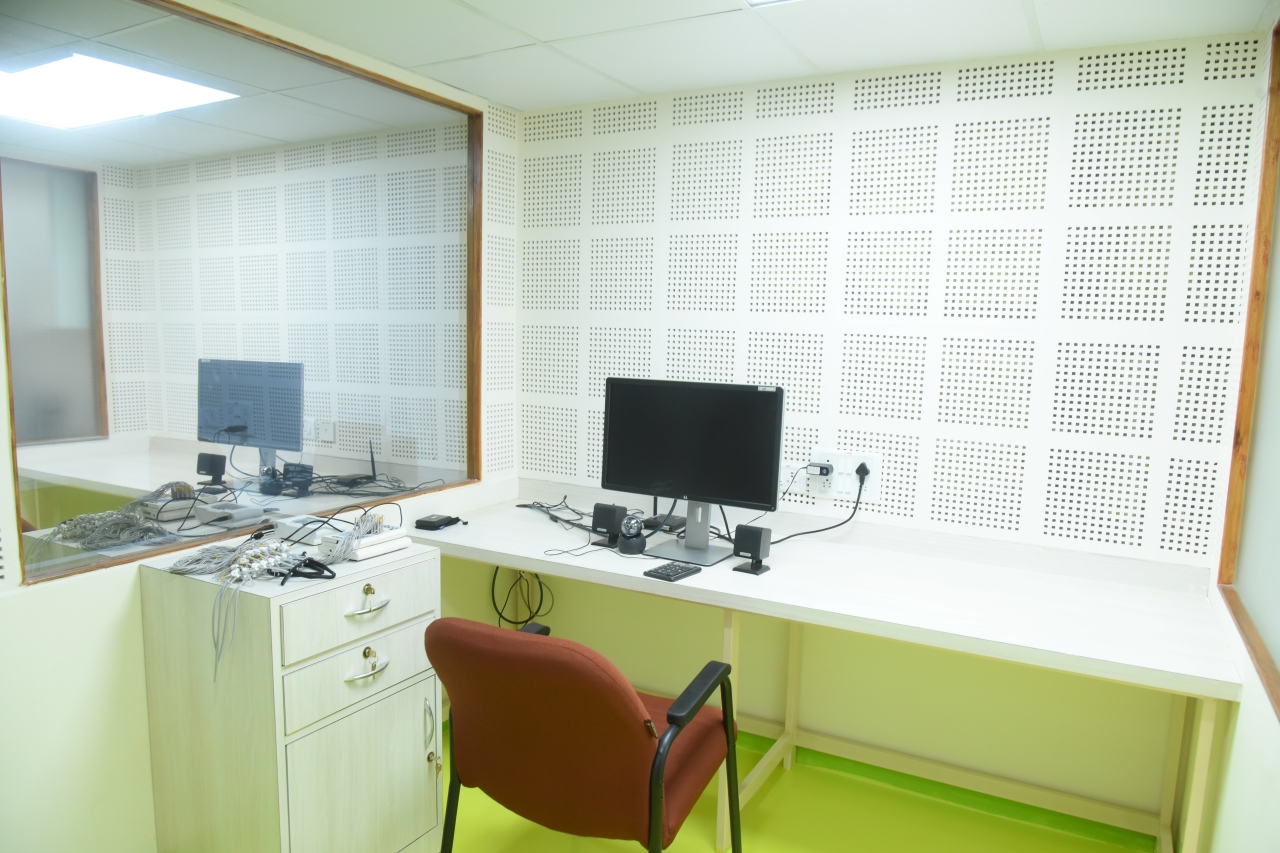
Biochemistry Labs
Undergraduate Laboratory:
The department of Biochemistry has a well-equipped undergraduate laboratory with reagents, apparatus, glassware, instruments, and audiovisual aids required for the conduct of practical and demonstrations as prescribed by the National Medical Commission, India. It can accommodate 125 students per session. Students are encouraged to undertake projects & research works under the guidance of faculty. They are also encouraged to present papers at state and national conferences.
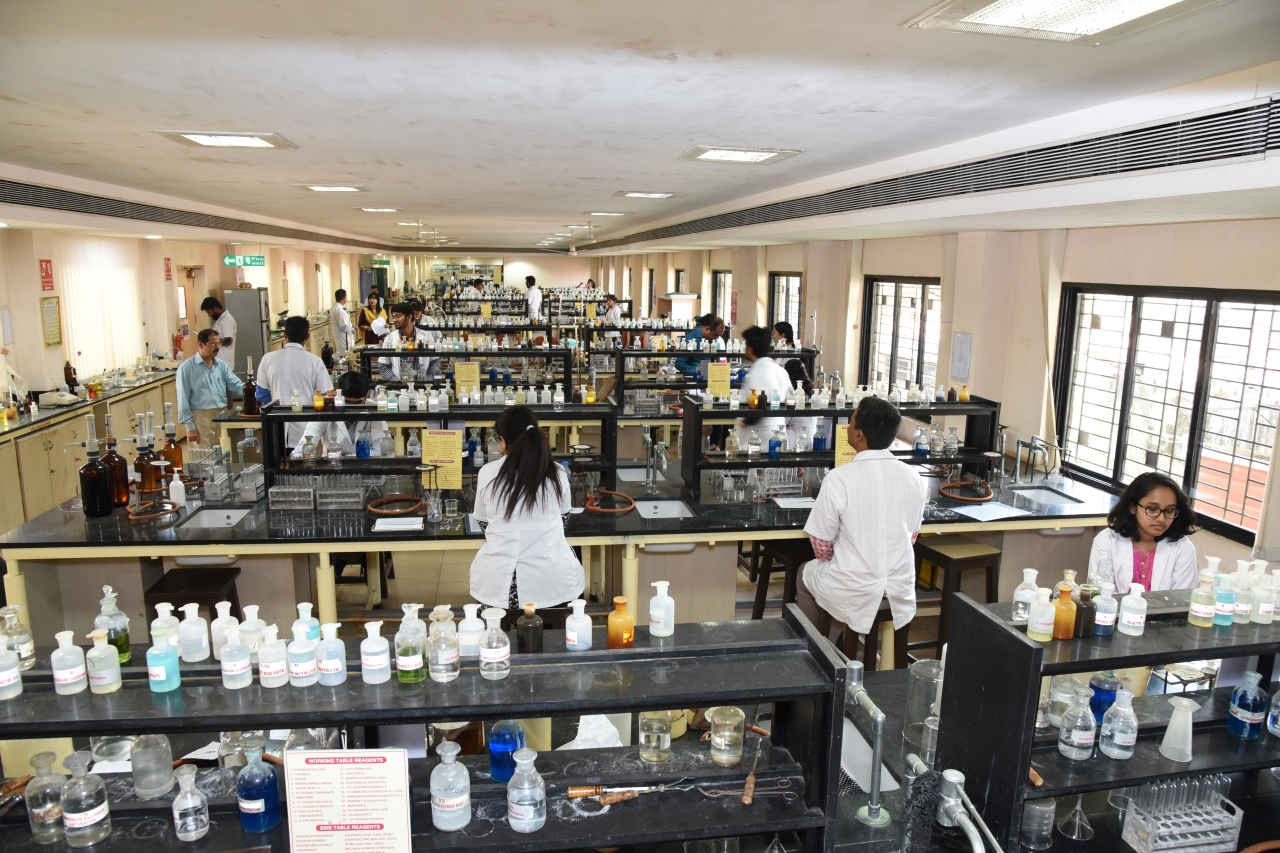
Research Laboratory:
The department of Biochemistry has a well-equipped Research lab with sophisticated instruments like Spectrophotometers, pH meters, Homogenizers, Fluorimeters, Elisa reader, etc, which caters to the needs of the postgraduates and the Ph.D. scholars of the department. Currently, the research lab is used for the following Ph.D. work
Inflammatory markers in predicting major adverse cardiovascular events in subjects exposed to coronary artery disease
Formulation and effectiveness of nutraceuticals in prevention and management of dyslipidemia induced in a rat model.
Serum micronutrients, thyroid profile, and placental thyroid hormone receptor expression on pregnancy outcome.
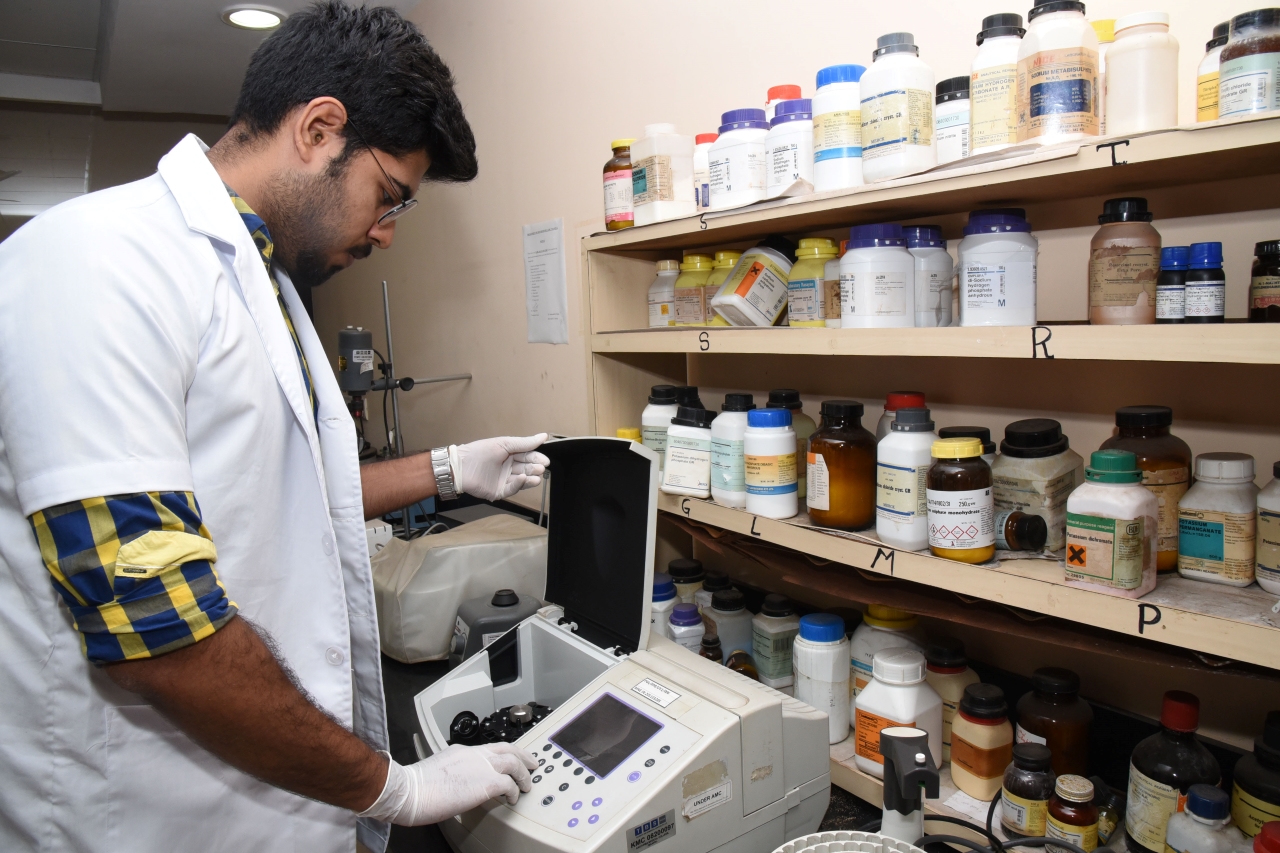
Diagnostic Laboratory:
The Biochemistry Department is involved in Undergraduate teaching for medical students. It also provides post-graduate training in MD and MSc in Medical Biochemistry. The Department of Biochemistry is run by a group of experienced and talented doctors and faculty who provide diagnostic laboratory services to outpatients and inpatients. The laboratory is NABL accredited and intends to serve as a referral laboratory for physicians of this hospital as well as for those practicing in the surrounding areas. Routine Biochemistry and specialized tests like hormones, tumor markers, vitamins, and therapeutic drug monitoring is carried out daily. Approximately two lakh fifty thousand tests are handled by the laboratory every month. Also, annually one training/ discussion program with HR heads of leading diagnostic companies will be organized to create an awareness regarding industry expectations from graduates to make them more job-ready.
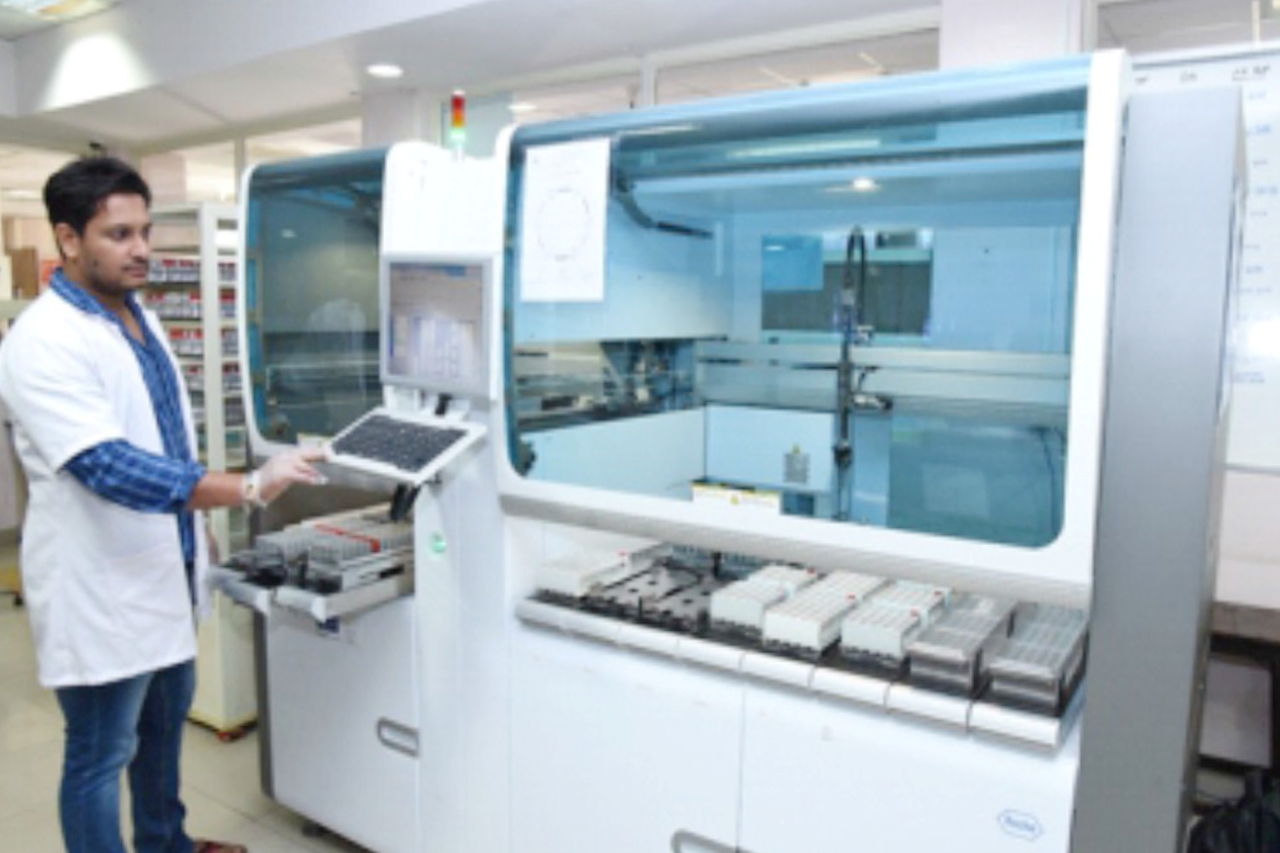
Pharmacology Labs
Computer Assisted Learning Laboratory:
The Computer Assisted Learning (CAL) Laboratory is equipped with audiovisual aids - Projector and Screen, LCDs, computers with internet connection. The computers are installed with CAL programs and other software. The students have access to the Standard Treatment Guidelines, National Essential Drug Lists, Pharmacovigilance Programme of India, Banned Drugs List of the CDSCO, Drugs and Cosmetics Act, 1940 and Drugs and Cosmetics Rules, 1945 and Amendments, Antibiotic Guidelines, Hospital formulary, National Ethical Guidelines for Biomedical and Health Research involving Human Participant – 2017, New Drugs and Clinical Trial Rules, 2019 and other resource material which will aid the students for rational prescribing.
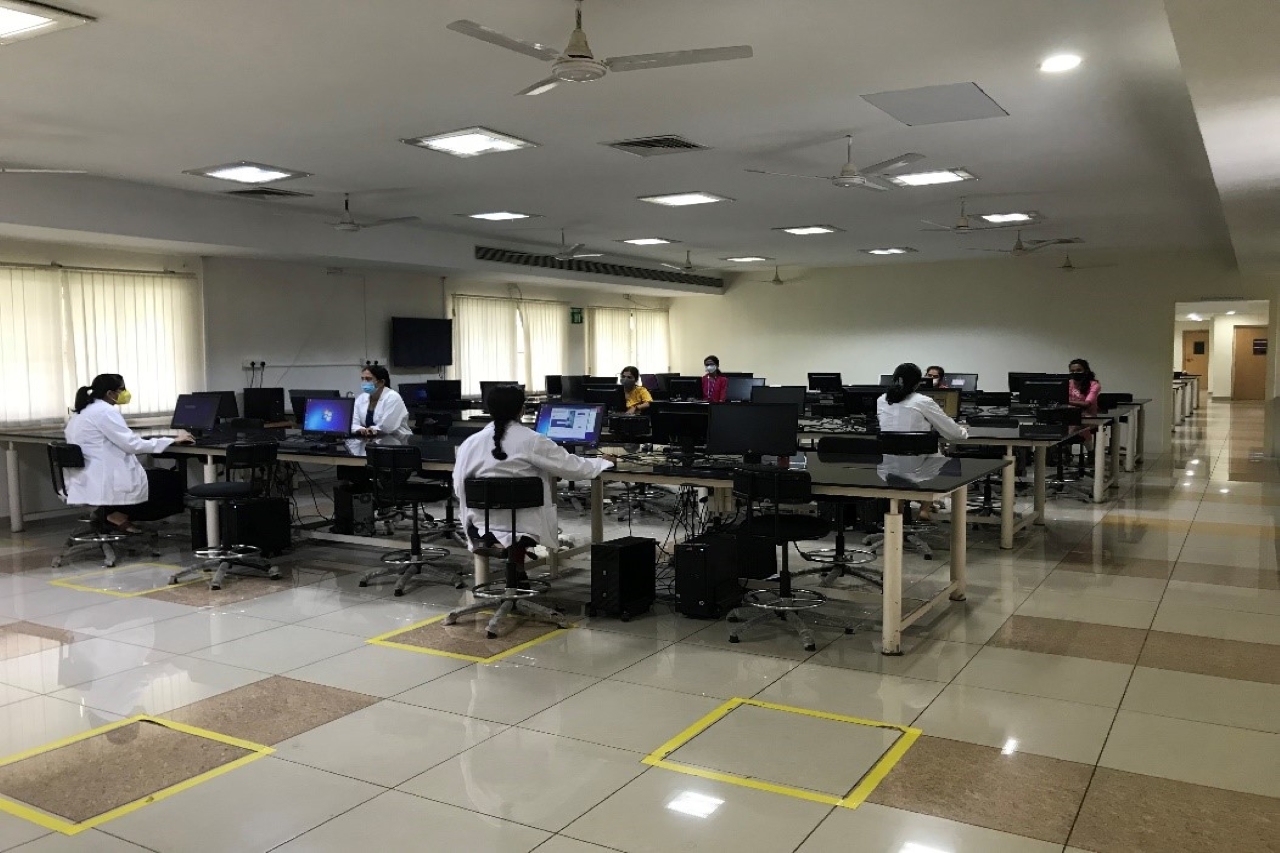
Clinical Pharmacology Laboratory:
The Clinical Pharmacology Laboratory is equipped with audiovisual aids like LCD, Projector with screen, and computer with internet connection. Charts, models, videos, and manikins are used to impart training to students about the pharmacodynamic and pharmacokinetic properties of drugs, adverse drug reactions, and drug administration techniques.
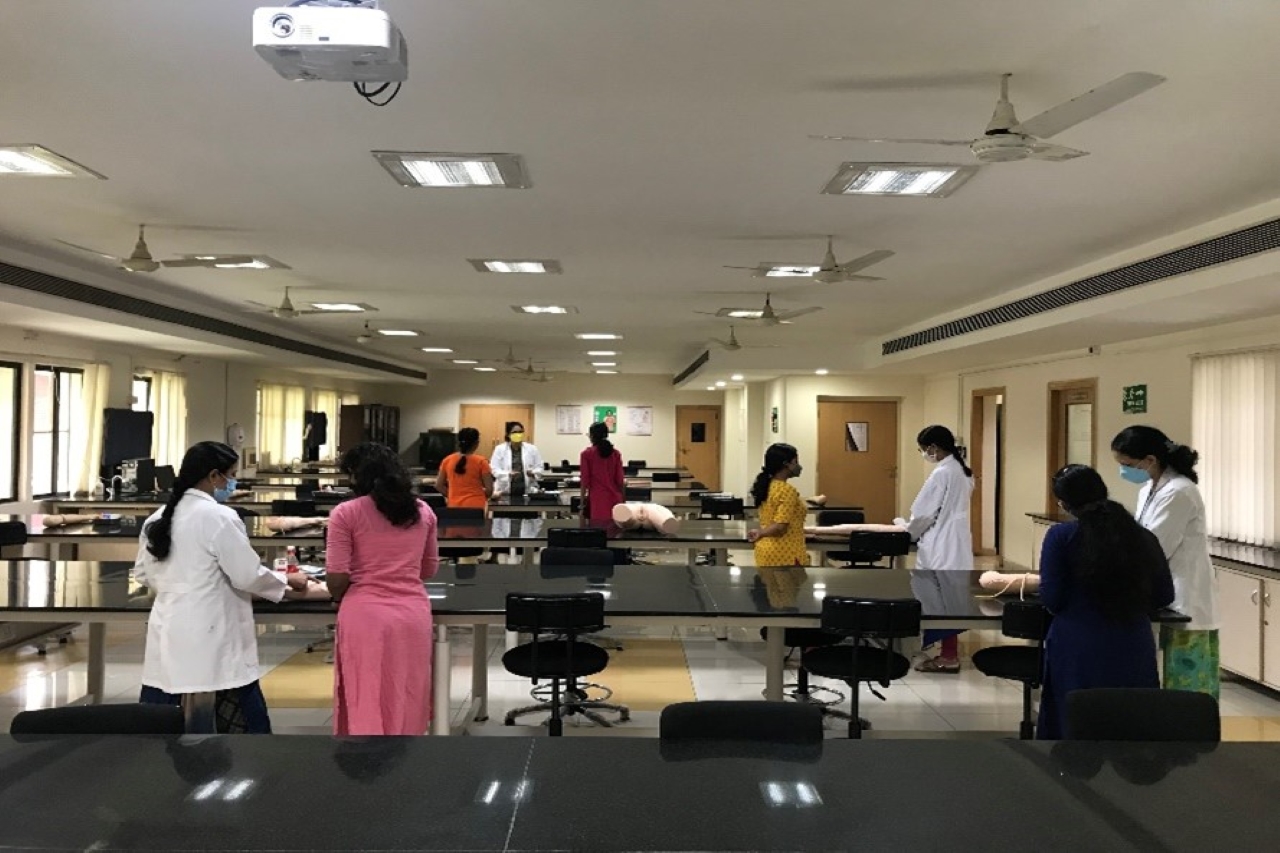
Experimental Pharmacology Laboratory:
The Experimental Pharmacology laboratory has LCD, Projector with screen and computer. Charts and photographs are displayed in the laboratory. CAL programs are used for teaching experimental pharmacology. It is provided with the equipment required for postgraduate training in Pharmacology.
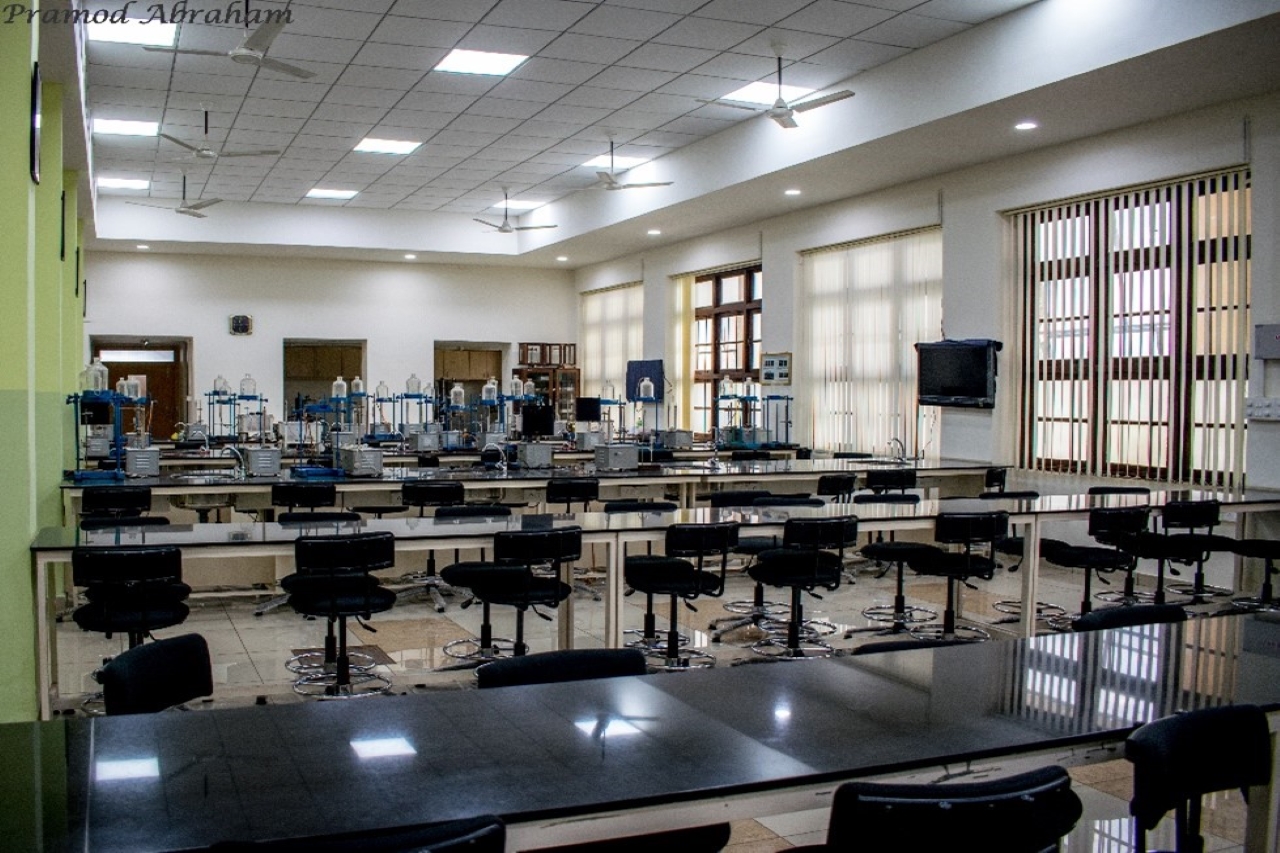
Research Laboratory:
The research laboratory has the equipment to carry out basic biochemical estimations and molecular biology research.
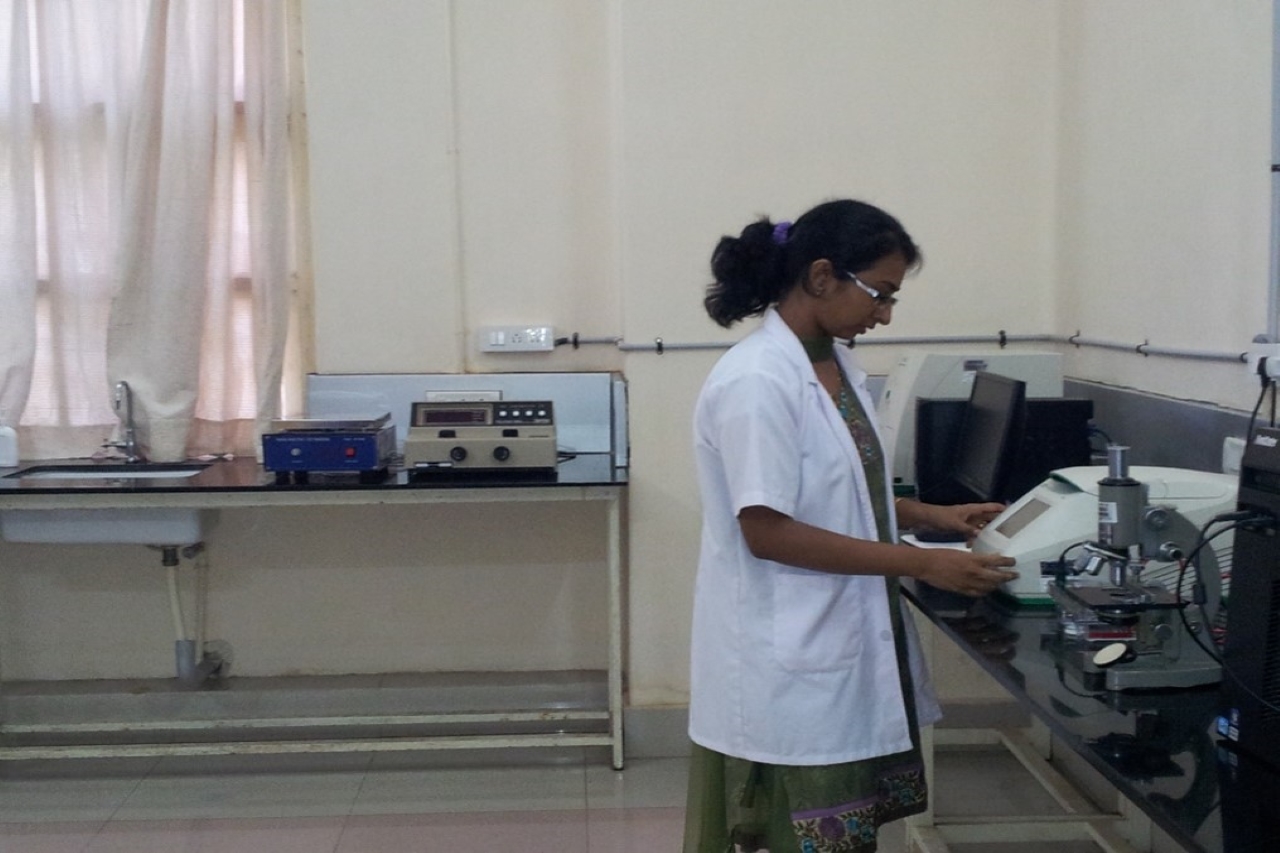
Pathology Labs
The Department of Pathology functions from the second floor of the Centre of Basic Sciences, KMC Manipal, and comprises subsections of Morbid Anatomy, Histopathology, Cytopathology, Clinical Hematology & Oncopathology. The histopathology section is equipped with microtomes, auto embedder, automated knife sharpener, tissue flotation bath, cryostats, deep freezer, auto tissue processor, automatic tissue stainer, and grossing stations. The department has facilities and provides services for immunohistochemistry, immunofluorescence, and HLA Lab/Cross-Matching. A separate Centre for Foetal and Perinatal pathology has been established for neonatal autopsies The division of Clinical hematology has a 5-part automated hematology analyzer, automated coagulation analyzers for coagulation testing, capillary electrophoresis, whole blood platelet aggregometry, and 2 full automated analyzers including microscopy flow cytometry for immunophenotyping for diagnostics and research and an ESR machine. A Penta head microscope with a digital camera is available for postgraduate teaching.
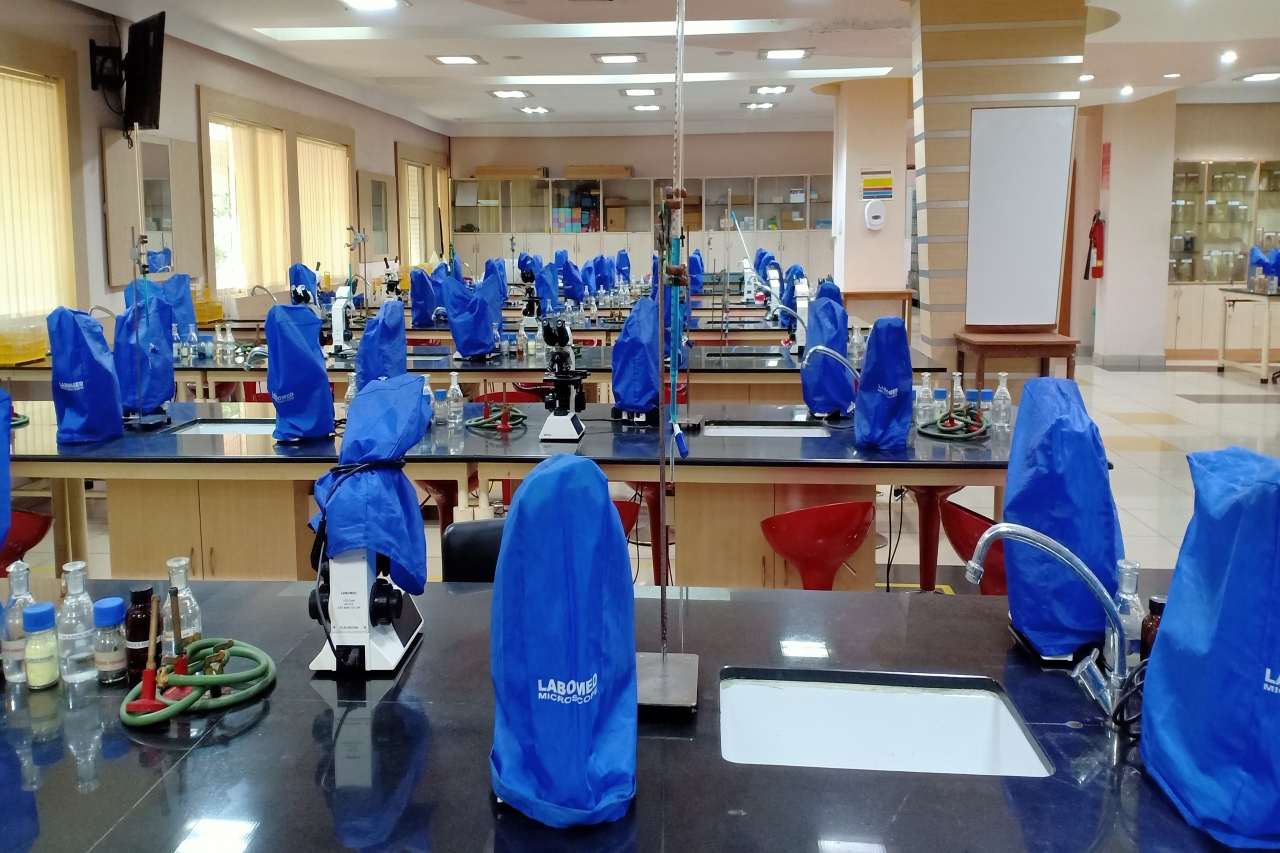
The pathology faculty conduct research and serve as guides/co-guides in major Ph.D. programs with Manipal College of Health Professions, School of Life Sciences, Manipal College of Pharmaceutical Sciences, and Manipal Institute of Technology. The department has a state-of-the-art undergraduate practical laboratory with an attached 15sqm preparation room that can seat 150 students. The laboratory is equipped with microscopes, projection microscope, TV monitors, overhead projector, dissection microscope, and trinocular microscope with photography unit which is used for teaching purposes. Additional demonstrations rooms are available for small group teaching and group discussions. A deca-head microscope with a TV monitor which is housed in the department library enables group teaching for postgraduates in Pathology. A one-year fellowship in Oncopathology has been initiated in the department that caters to two fellows per year.
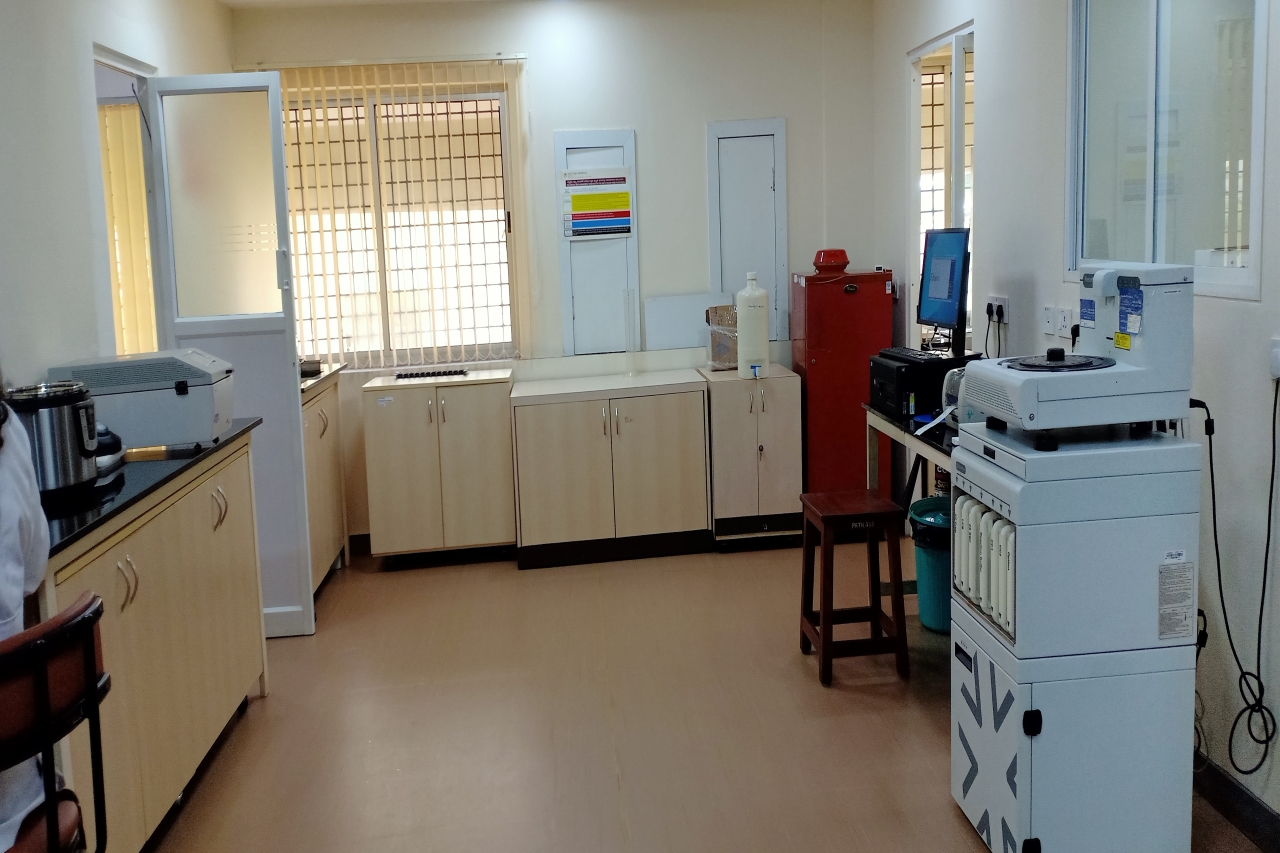
Microbiology Labs
24 x 7 Critical Care Laboratory (CCL):
Management of the critically ill often calls for a team effort among health care providers with close patient monitoring, based on laboratory findings. Nested in the hospital premises, the 24x7 Critical Care Laboratory, Department of microbiology augments the diagnostic services in the frontiers of tackling the infectious disease in the critically ill ones. It offers round-the-clock services with alerts and prompt communication.
Advanced TB Laboratory:
First of its kind in southern coastal Karnataka with facilities like; Fluorescence LED Microscopy, Gene Xpert MTB/RIF, MGIT 960 Liquid culture system, Line Probe assays first line and second line and Phenotypic DST for the first-line TB drugs. The lab is attached with the Designated Microscopy Centre of the RNTCP and accredited by the RNTCP for the Line Probe Assay. It caters to the needs of nearby hospitals in Udupi, Dakshina Kannada, and North Kanara. The lab also collaborates with other institutions of MAHE, reputed national and international research institutions, and has mutual agreements with companies for research activities. Periodic national level training is imparted to postgraduates and junior faculties of medical institutions through workshops. The lab has been involved in helping State TB cell Karnataka for follow-up cultures of the patients who were undergoing MDR TB treatment in 9 districts of Karnataka.
State Referral Lab (SRL) Integrated counseling and testing center (ICTC) for HIV and surveillance:
HIV SRL is one of the best among the 10 State Reference Laboratory in Karnataka recognized by the National AIDS Control Organization (NACO), India. The SRL caters to the districts of Udupi, Chikmagalur, and Shimoga and provides training and assistance to the ICTCs. Both SRL and ICTC lab is accredited by the National Accreditation Biological laboratories (NABL) India. ICTC provides free HIV testing and counseling facilities.
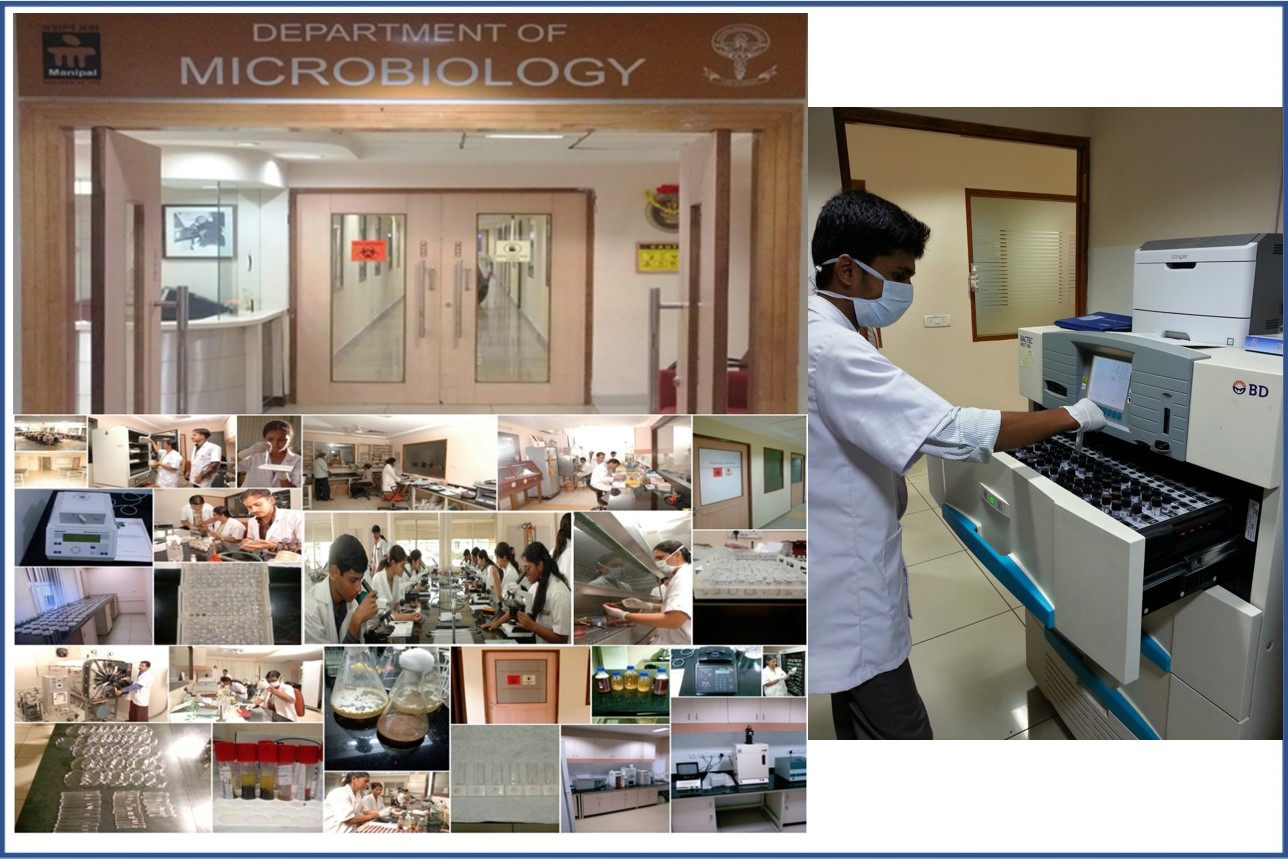
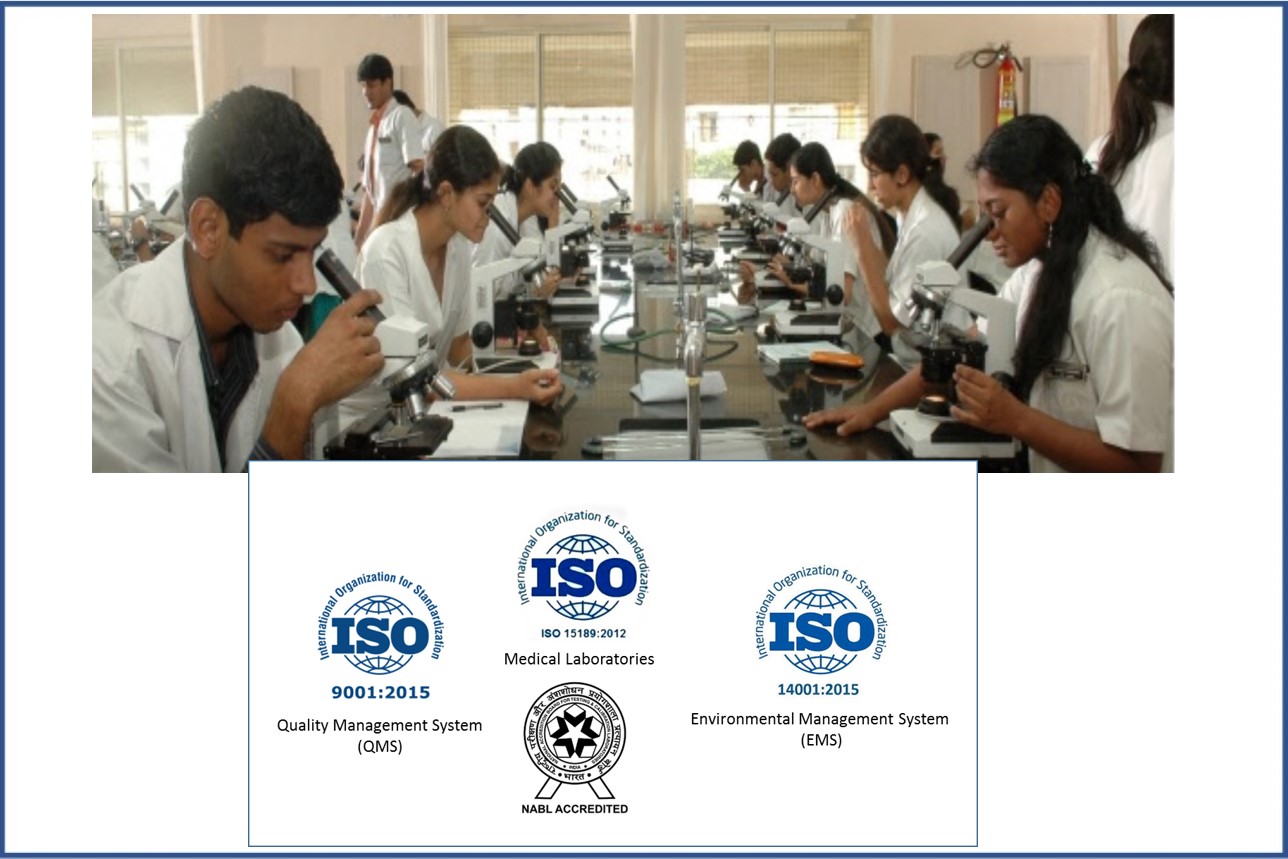
Forensic Medicine Labs
Forensic Medicine Labs
Practical Laboratory:
Practical Laboratory in the Department of Forensic Medicine and Toxicology has an area of 275 sqm2 is provided with various equipment for serological analysis, analysis of bone samples, ultraviolet view box, processing fingerprints, and various crime scene analysis. The lab is provided with seating for 60 users at a time with sufficient sinks and water supply. This lab also has been provided with LCD projectors and a blackboard with around-the-clock high-speed internet connectivity. This lab provides access to various hands-on analytical techniques for undergraduate and postgraduate students including the MD and MSc students. It is widely used by the faculty for processing the samples from the crime scene.
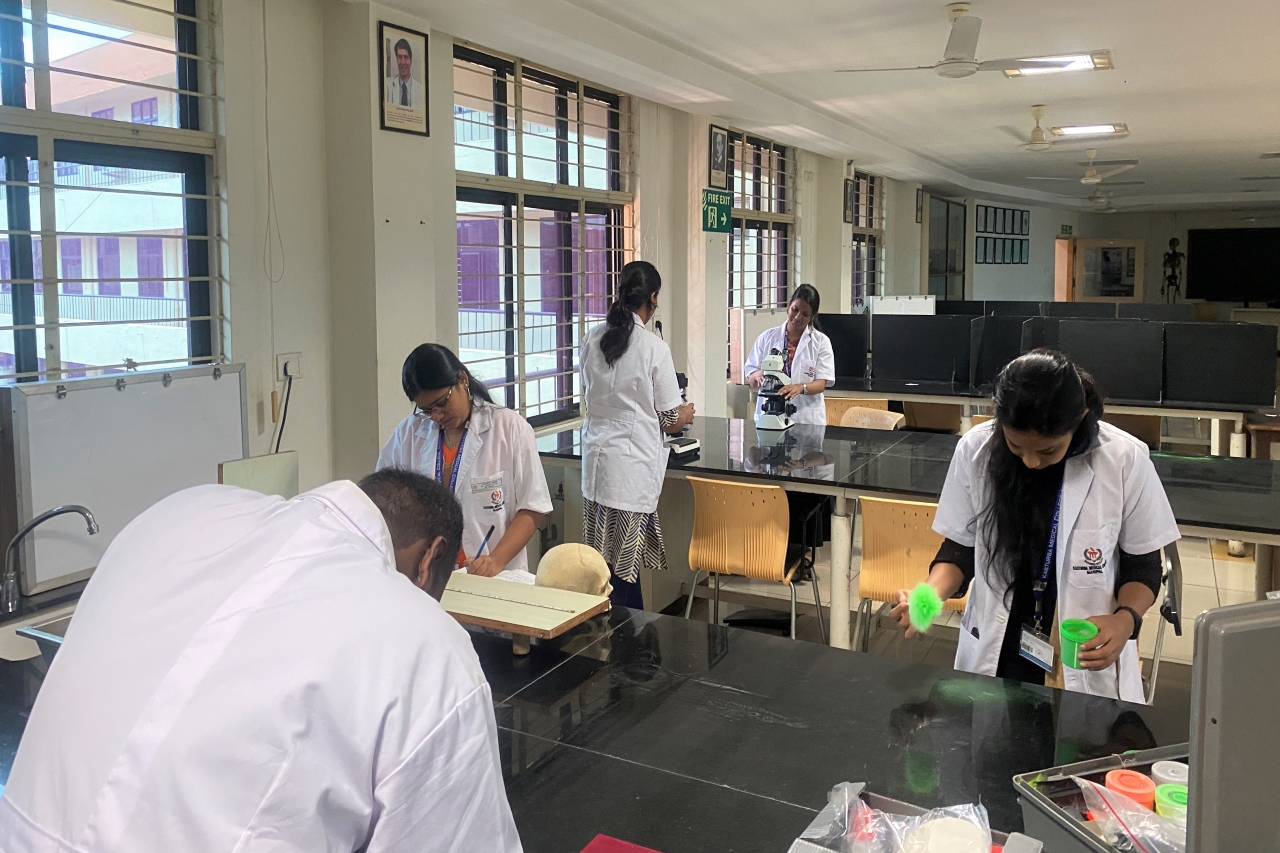
Post-mortem lab/mortuary:
It is situated in the adjacent building of the Department of Forensic Medicine and toxicology. The total size of the mortuary is 515 m2 with facilities for ante-rooms, washing facilities with an accommodation capacity of 80 students with a doctor's room, a waiting hall, a police inquest room, and an office. There are a total number of 3 autopsy tables with facilities of an open mortuary. Mortuary is attached with a classroom with facilities for accommodation of 100 students which is equipped with LCD projectors and high-speed internet. Cold storage facility where 15 dead bodies can be stored at a time is present in the mortuary complex. The facilities help to undertake an average of 350 autopsies in a year.
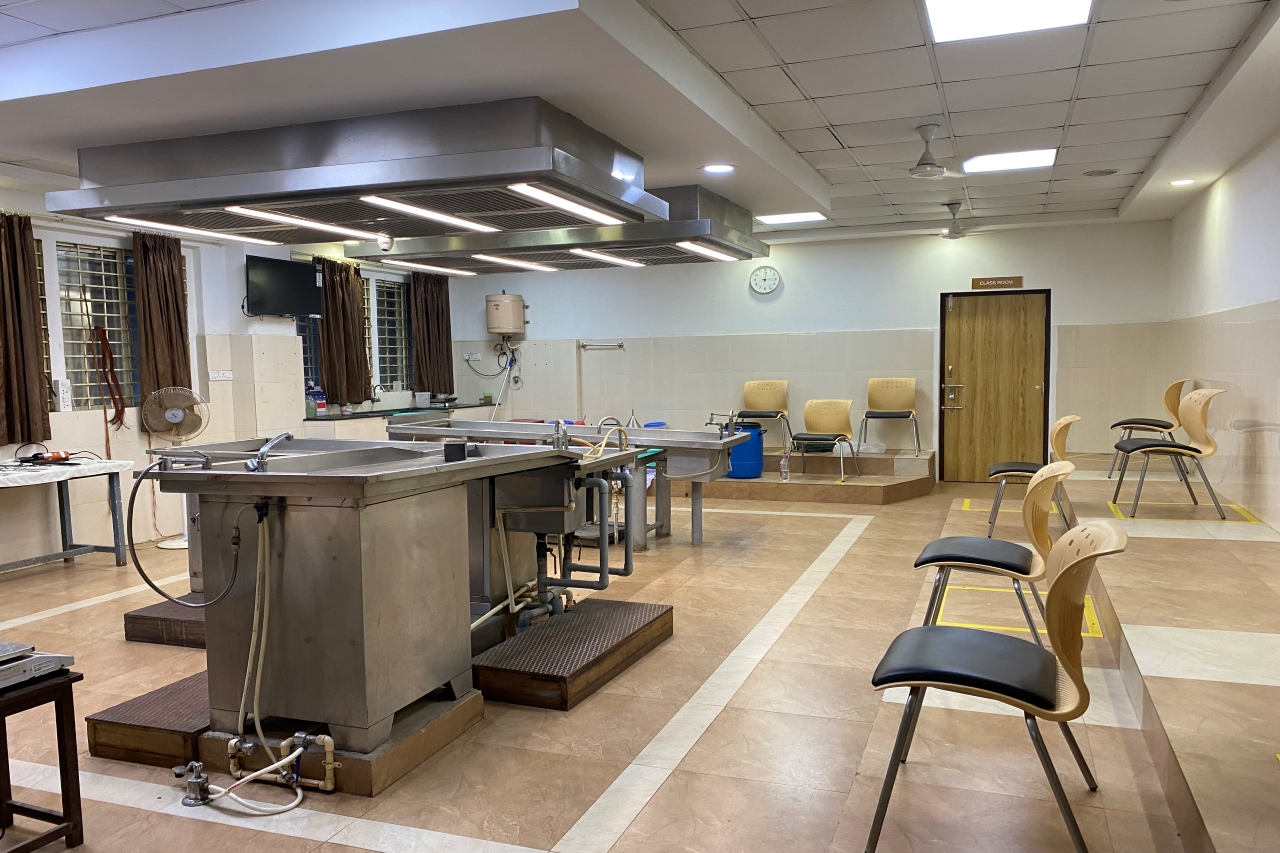
Research laboratory:
The research laboratory in the Department of Forensic Medicine and Toxicology is used by the faculty and postgraduates students who take part in the research. The laboratory facility is spread over an area of 60 m2 with facilities for histopathology research which is equipped with a fully automated tissue processor unit, along with other basic laboratory equipment.
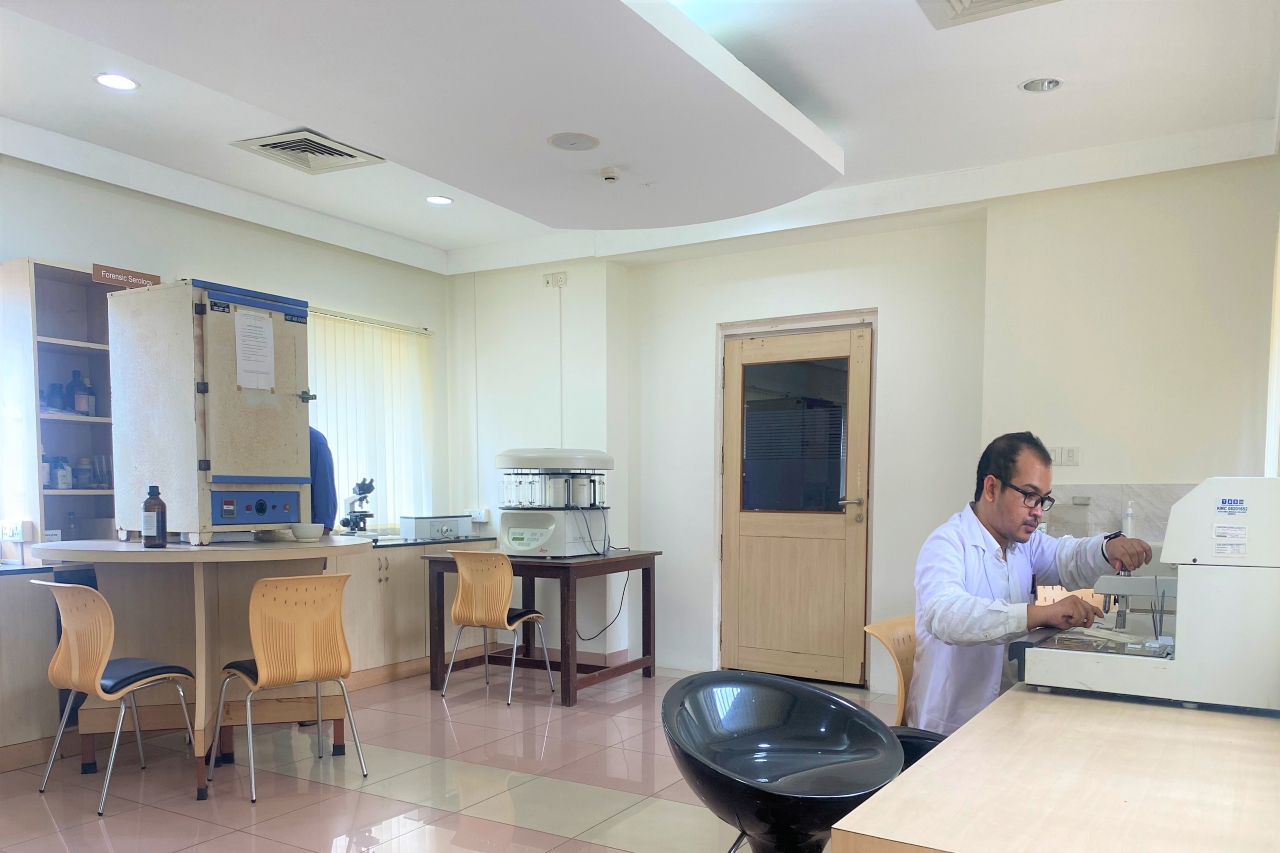
Community Medicine Labs
The department has a well-equipped lab with a capacity to accommodate 125 students at a time with individual stations for practicing skills. The Lab is equipped with 19 dissecting microscopes and 19 compound microscopes. LCD projectors and screens, Computers, Smart TVs, Cordless speakers, Cordless collar mike are also installed in the lab to enhance the learning experience and to facilitate e-learning. A separate Public Health Lab equipped with an autoanalyzer, food, and water analysis kits, gene expert for STI diagnosis, functions effectively in screening for common diseases in the community as well as MD and Ph.D. Scholar training.
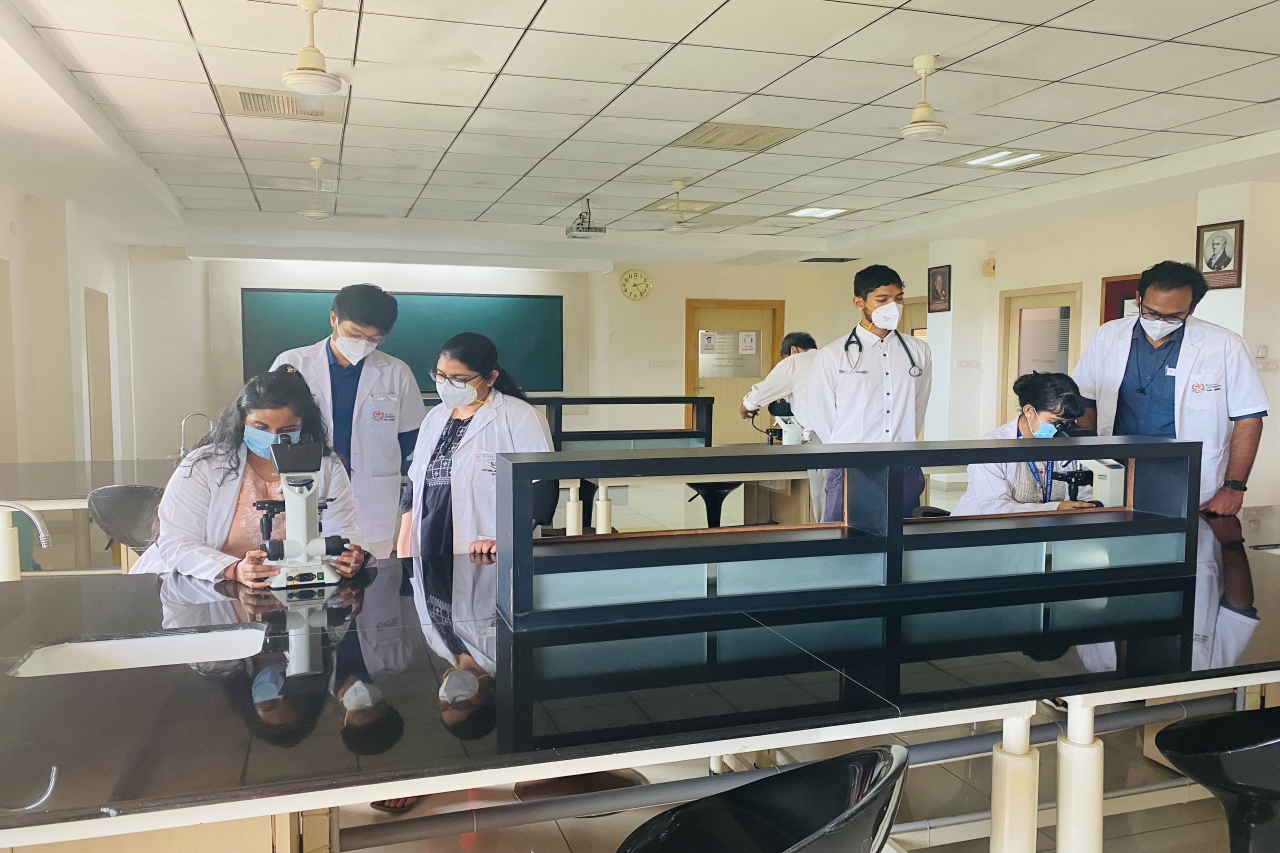
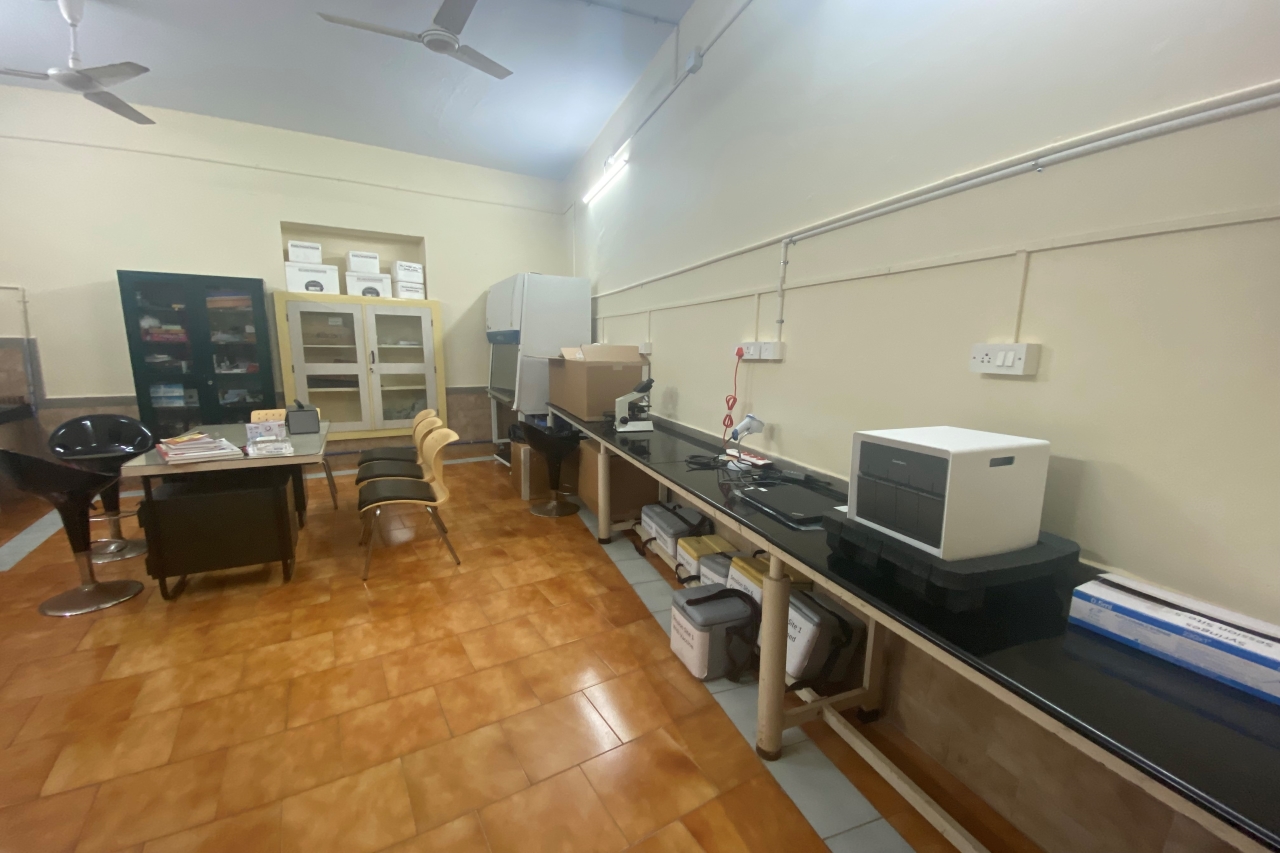
Respiratory Medicine Labs
The Pulmonary Function Laboratory:
Pulmonary Function Laboratory has a battery of test which provides diagnostic screening services that assist our medical professionals in the diagnosis and treatment of respiratory conditions such as Asthma, COPD, Pulmonary Fibrosis and other respiratory conditions. Our Pulmonary Function Laboratory has the following diagnostic test
Sleep Studies Lab:
Polysomnography (PSG), also known as Sleep Study, is the most commonly used test in the diagnosis of Obstructive Sleep Apnoea (OSA) and related disorder which manifest as snoring. It is useful to detect whether long-standing snoring is harmful to the health or not. Now it has been proved that snoring may be a manifestation of insufficient airflow (Sleep Apnoea) into the lungs results in an increased risk for cardiovascular and metabolic disorders. Polysomnography is considered as a criterion standard for diagnosing OSA, determining the severity of the disease, and evaluating various other sleep disorders that can exist with or without OSA. Polysomnography is non-invasive and consists of a simultaneous recording of multiple physiologic parameters related to sleep and wakefulness. In addition to helping diagnose sleep disorders, polysomnography is used to initial or adjust your treatment plan if you've already been diagnosed with a sleep disorder. Proper initiation of treatment in sleep-disordered breathing may prevent any serious complications and even unexplained death during sleep.
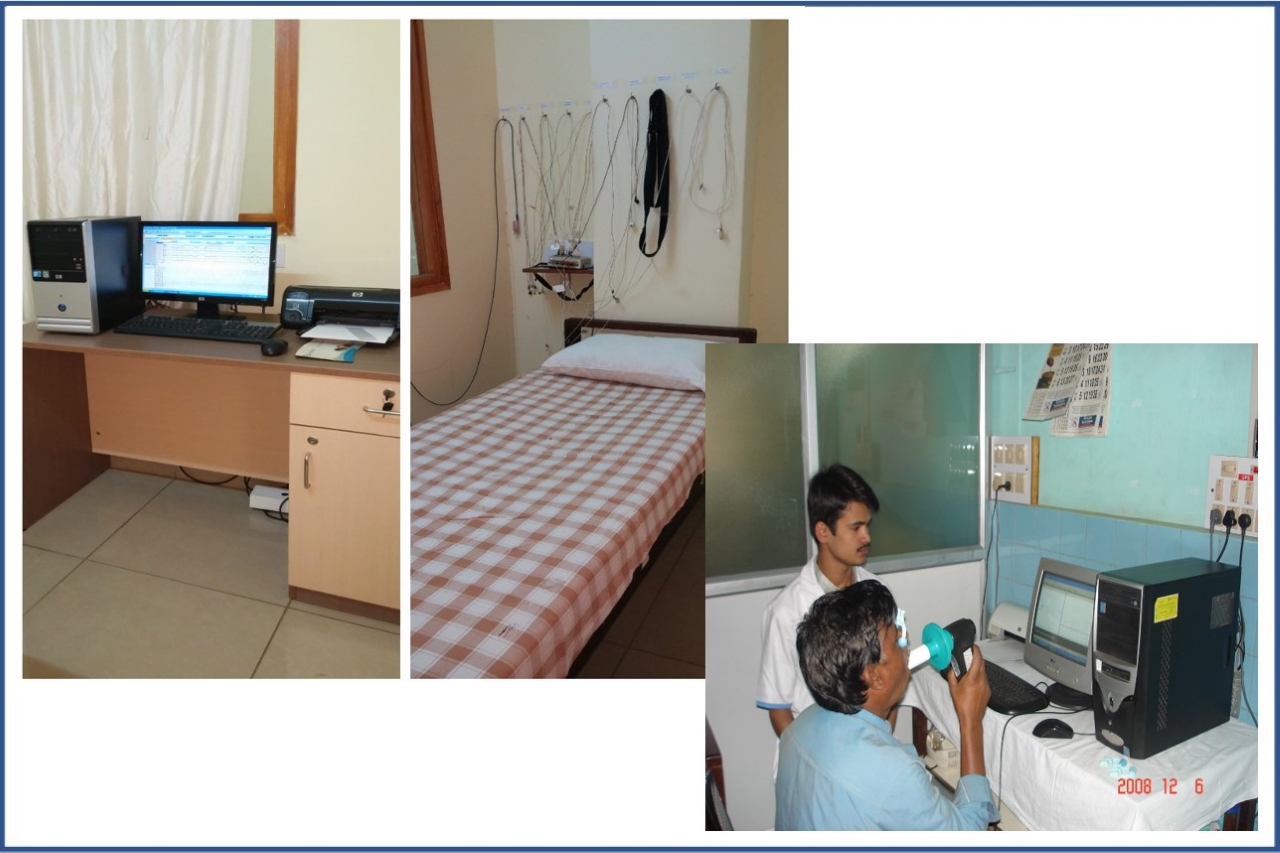
Dermatology Laboratory
Department of Dermatology is equipped with state of art diagnostic and therapeutic facilities. The laboratory attached to the department offer routine as well as advanced diagnostic tests. Routine diagnostic tests include scraping for fungus, slit skin smear, Gram's staining, Giemsa staining, acid-fast staining, and dark ground microscopy. Advanced diagnostic procedures include immunofluorescence (both direct and indirect), antigen mapping for hereditary epidermolysis bullosa, and various tests to detect skin allergy (listed below). The department is one of the first in the country to start phototherapy treatment for patients with selected skin diseases. also well equipped with phototherapy, therapeutic (Bath PUVA, Narrowband UVB, Targeted Phototherapy, and phototherapy using hand & feet unit and platelet-rich plasma (PRP)) procedures.
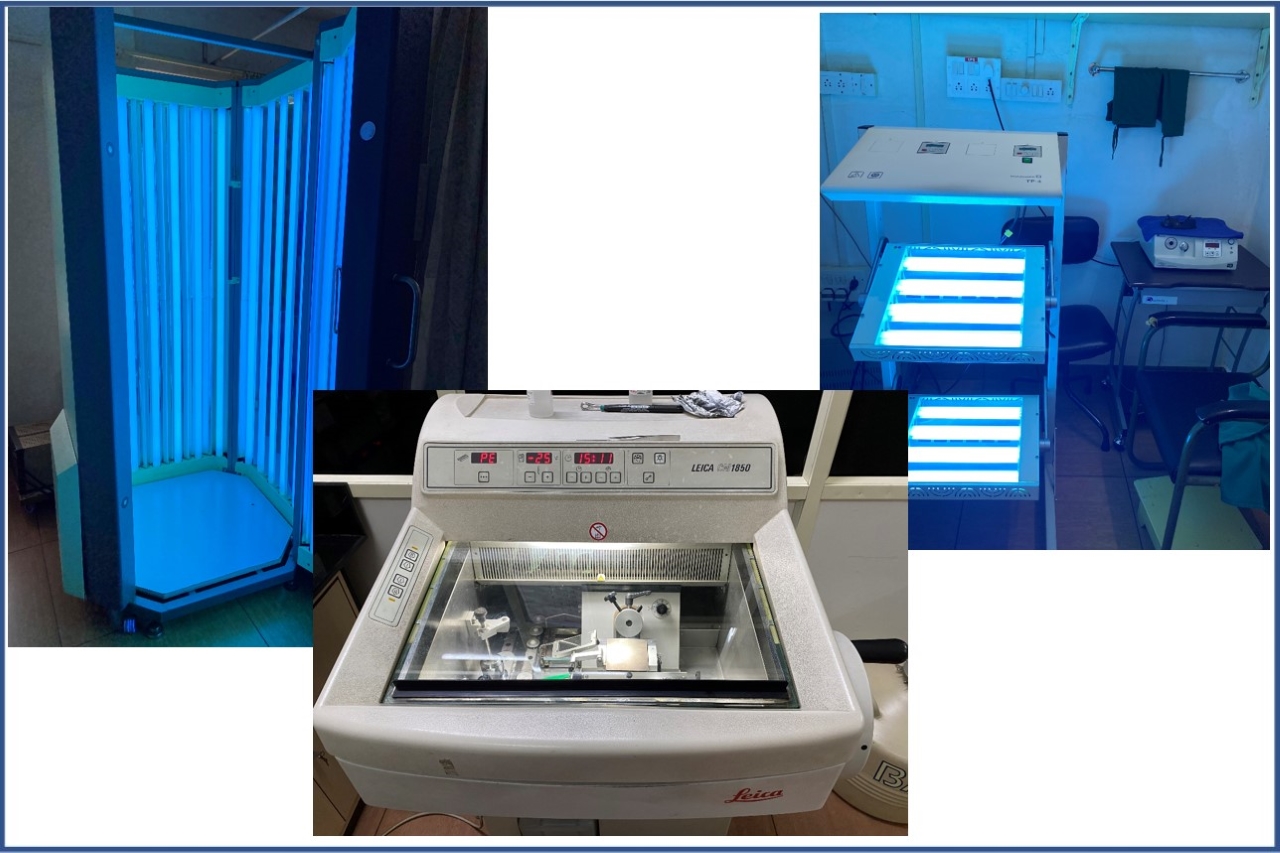
Orthopaedic Lab
The skill lab was established in 2019 to impart hands-on skills of basic Orthopaedic procedures on bone models/tendon/nerve repairs. The skill lab has proven to be a much-needed education tool in the training of post-graduates towards competency, especially in such times of pandemics. The skill lab has the following facilities.
· Four workstations with mounted bone models for fracture fixation modules.
· One workstation for suture techniques.
· One workstation for tendon repair.
· An interactive projector.
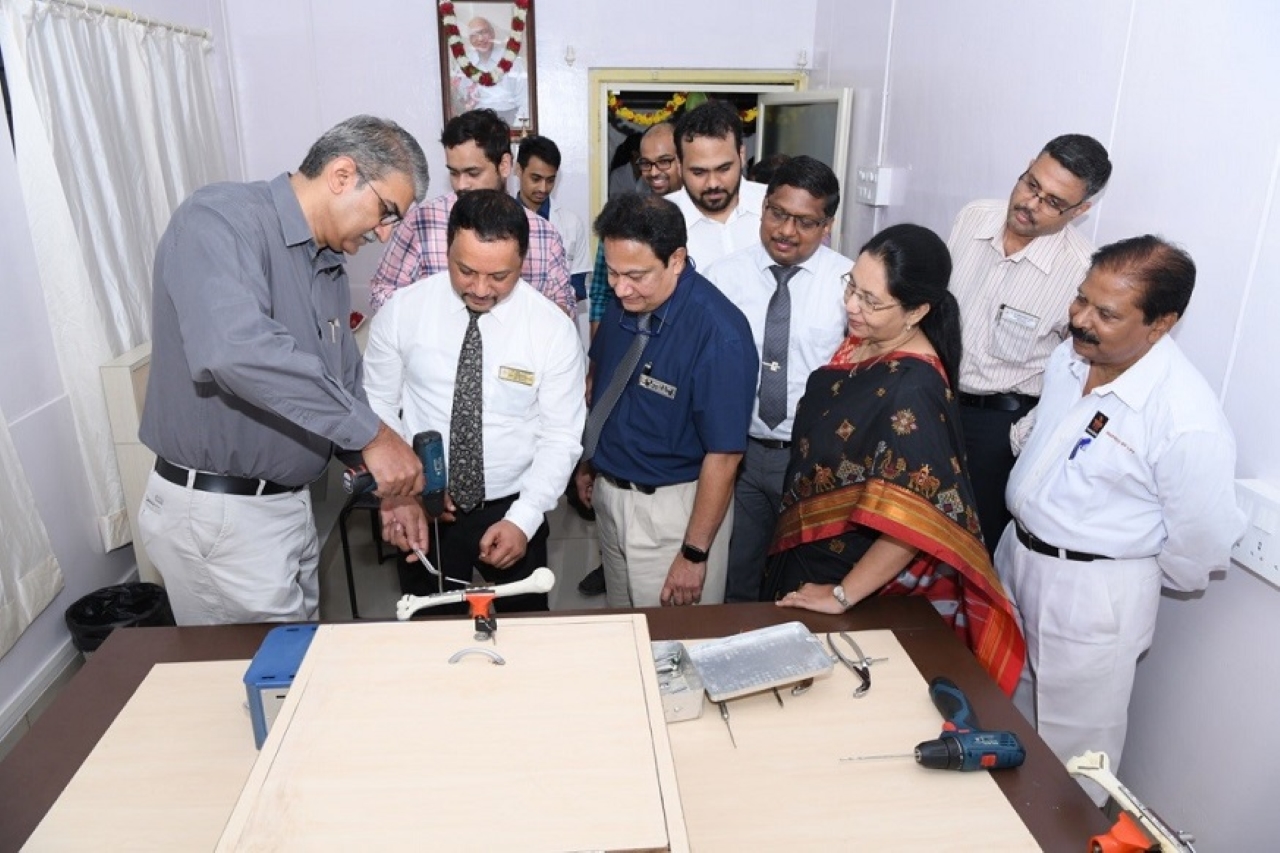
Ophthalmology Lab
The research lab in Ophthalmology allows UGs and PGs to gain the skills required on simulation eyes or goat eyes before operating on patients. All the steps of surgeries can be practiced under the direct supervision and guidance of our faculty and senior postgraduates. Advanced phacoemulsification machines like the Laureate are at their disposal. The lab provides means of training our students in routine as well as sophisticated surgeries like minimally invasive glaucoma surgeries which will give them an edge over their contemporaries. Many of the thesis/dissertations of our students are based on the experiments conducted at our lab. The lab is sure to awaken the scientist and nurture the surgeon in each of our students
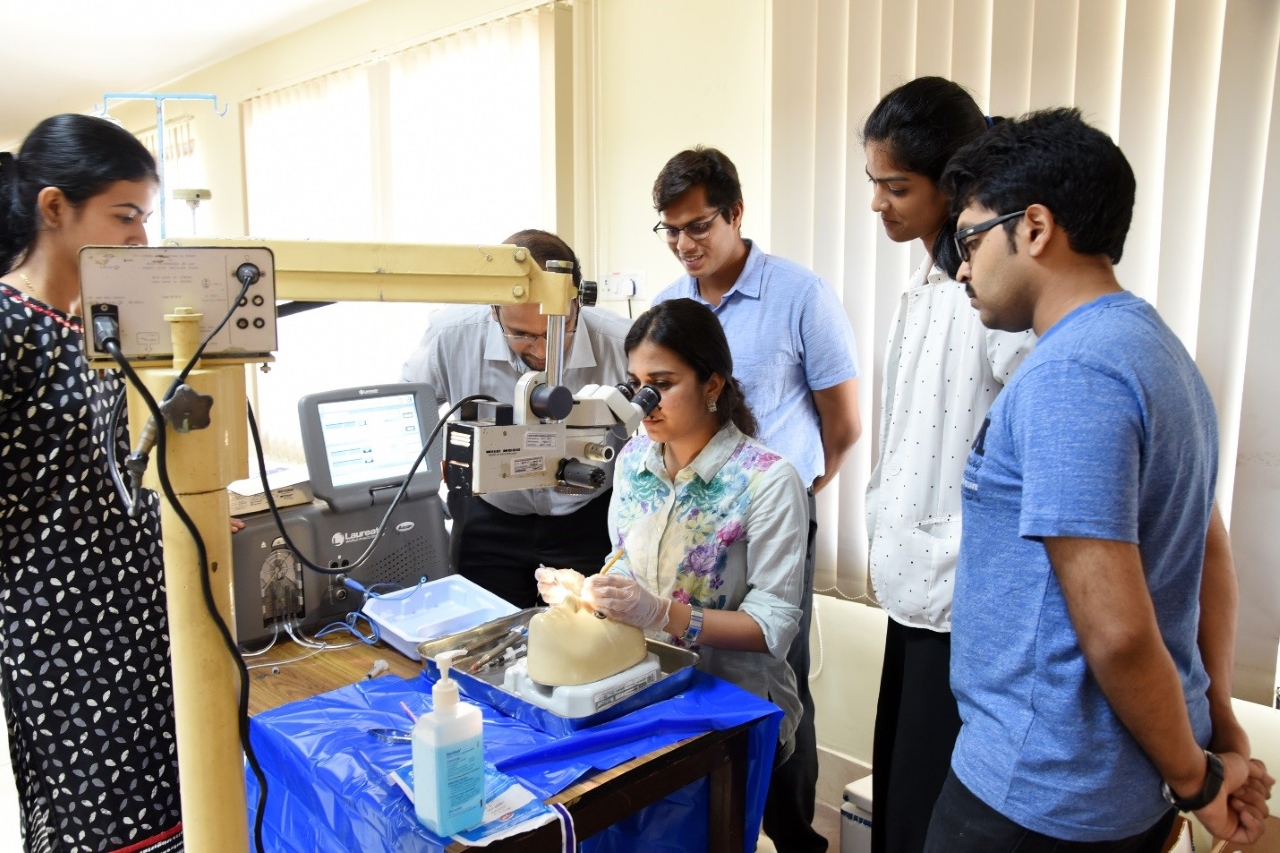
Radiotherapy Labs
Versa HD Linear accelerator:
A linear accelerator is the heart of a modern radiation oncology setup. Our department is equipped with a state-of-the-art linear accelerator, Versa HD, manufactured by Elekta (Elekta Inc, Stockholm). It is capable of delivering a wide range of treatment techniques, from conventional photon and electron beam radiation to advanced technologies, including Volumetric Modulated Arc Therapy (VMAT, a form of Intensity Modulated Radiotherapy) and Stereotactic radiotherapy (inclusive of Radiosurgery and Stereotactic Body Radiotherapy), with a robust onboard Cone-Beam CT Image Guidance, to boot, to enhance the treatment accuracy. Typically, around 800-900 patients with cancer are treated every year on the Linear accelerator at our center. Other than patient treatment, the machine is also used for blood product irradiation in collaboration with the Department of Transfusion Medicine, and in multiple research projects in collaboration with various departments involving the study and use of ionizing radiation.
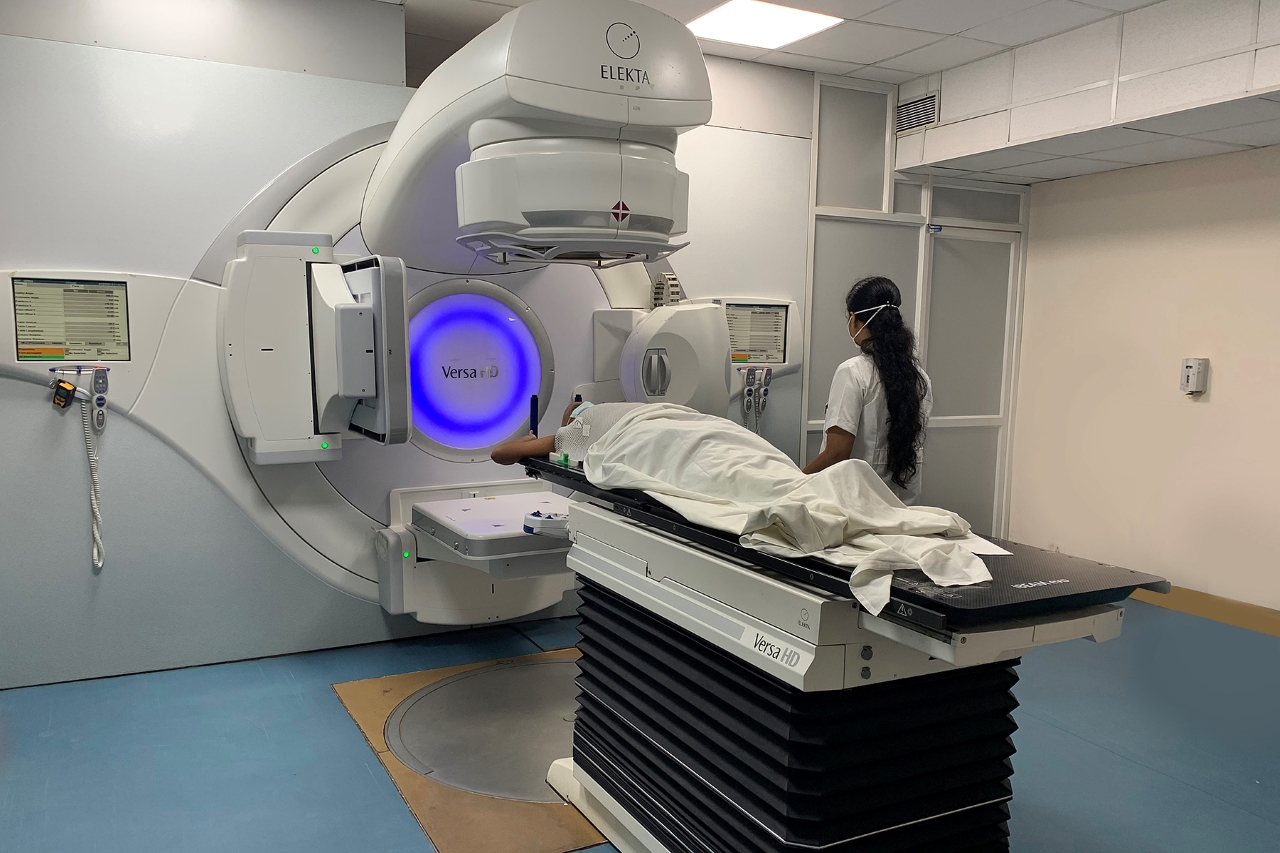
Gamma med Plus HDR brachytherapy unit:
Radiation oncology setup can never be complete without having a brachytherapy unit, which complements a teletherapy unit in enabling a comprehensive implementation of radiation therapy for cancer treatment. The department is equipped with Gammamed Plus High-Dose Rate (HDR) brachytherapy unit, manufactured by Varian (Varian Medical Systems, UK). Intracavitary and interstitial brachytherapy is frequently practiced, and an occasional patient has also been treated with surface mold brachytherapy and intraluminal brachytherapy techniques.
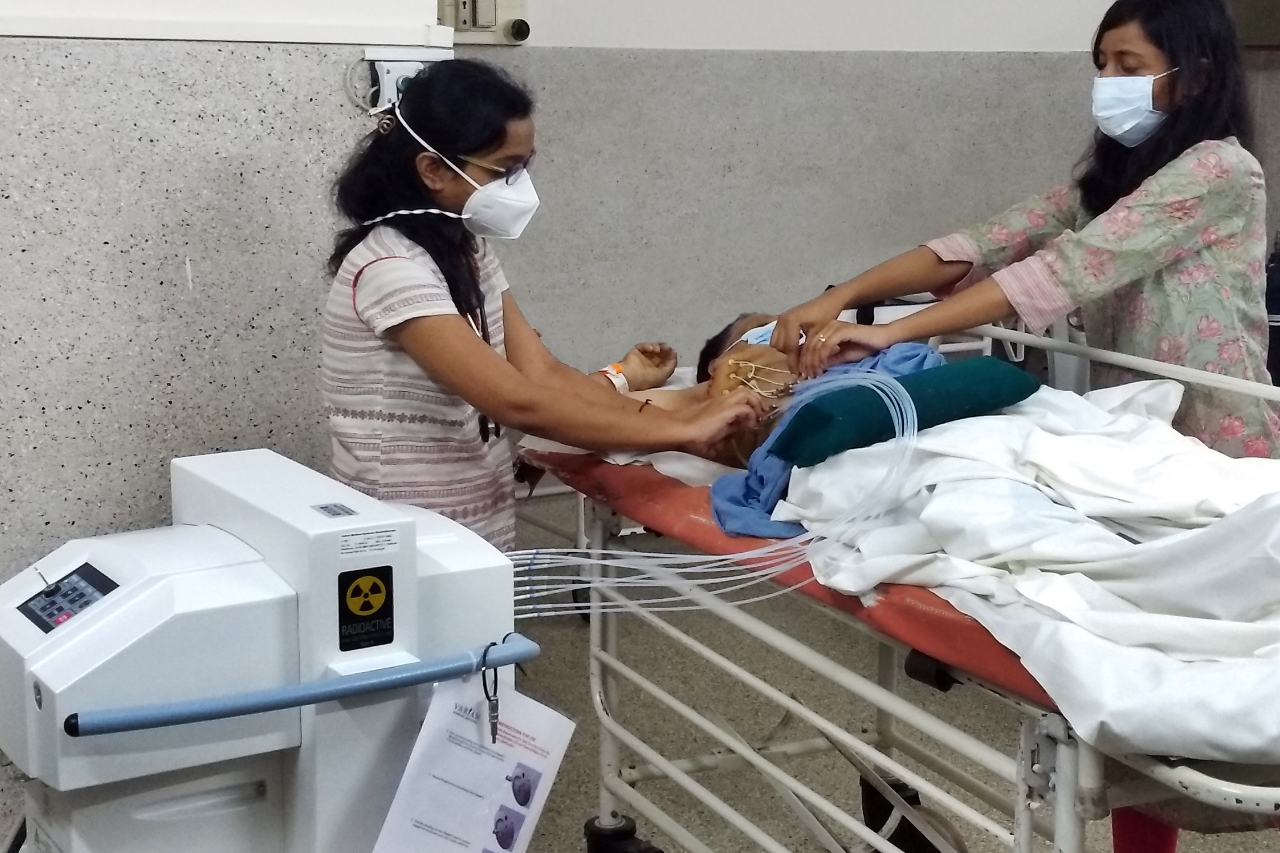
IHBT Lab
The laboratories of Immuno Haematology and Blood Bank department are used for UG &PG teaching, diagnostic, therapeutic, and research purposes. They include
Immunohematology lab:
· Dedicated laboratory to perform red cell serological work-up like blood grouping, antiglobulin test, antibody screening, and identification by automation or semi-automation platform
· Resolution of problems involving red cell antigen and antibodies
· Advanced immunohematology work up includes auto-immune hemolytic anemia workup, extended red cell phenotyping, rare blood type identification
· Equipped with automated equipment and special antisera/reagents
· To perform academic and research activities related to red cell serology
· Regional reference laboratory of immunohematology workup
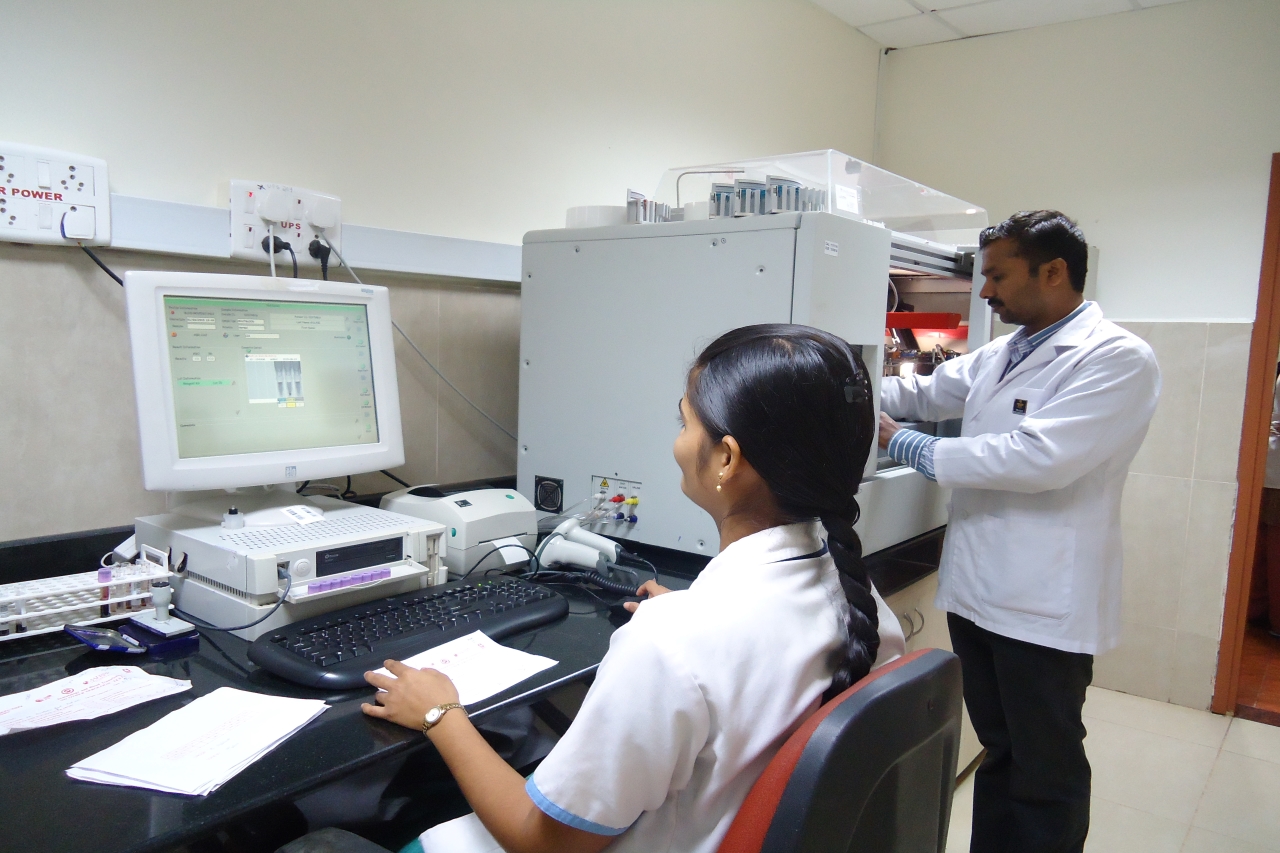
Transfusion transmitted infection (TTI) screening lab:
· Mandatory screening of all donated blood units for HIV, Hepatitis B, Hepatitis C, Malaria, and Syphilis testing
· Equipped with automated ELISA and enhanced chemiluminescence serological assays
· Facility to perform molecular Nucleic Acid testing of blood units to enhance the safety of blood components being used for the recipients/patients.
· In-depth training for postgraduate students including maintenance, inventory, quality control, troubleshooting, and root cause analysis
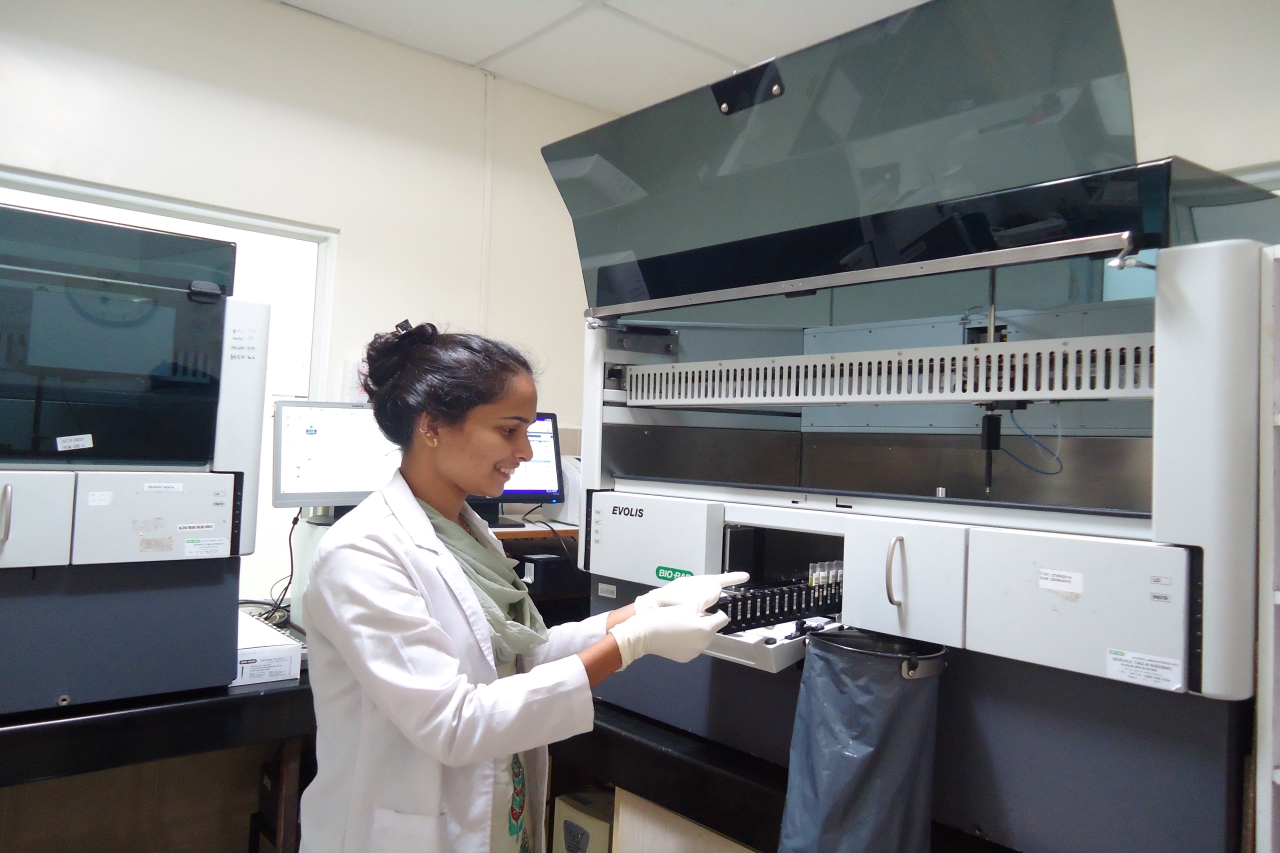
Blood component separation laboratory:
· 100 % component separation practices
· Well equipped with automated blood component separation devices, micro-processor controlled refrigerated centrifuges, and dedicated storage cabinets for each blood component
· To meet the blood component specification required for exchange transfusion and intrauterine transfusion
· Modification of blood components like Leukofiltration, Irradiation, and Washing as per the clinical requirement
Quality Control (QC) Laboratory:
· To perform QC of blood components, TTI marker control samples, Immuno-hematology antisera, reagents, instruments, etc.
· External Quality Assurance Program (EQAS) testing related to Immunohematology and TTI
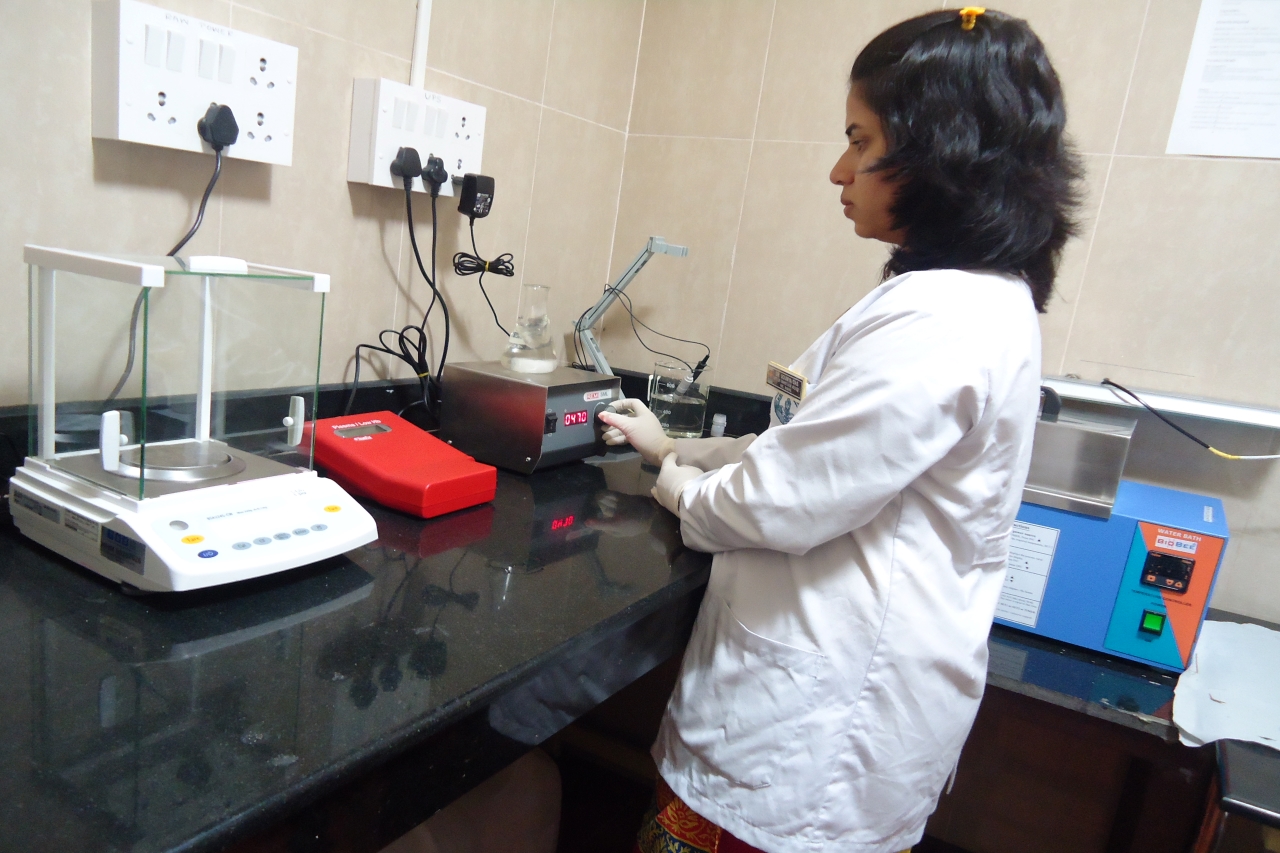
PG research laboratory:
· Serum Bank dedicated to the academic training of postgraduate students
· The lab includes provision for HITT test, PNH test, Factor H Assay test, KB test facilities
· Minor group antisera, Lectins, Enzymes available for advanced immunohematology workup
· Research projects in collaboration with interdepartmental and national academic institutes
Donor Complex:
· Equipped with state-of-the-art apheresis machines for collection of desired blood components
· Collection of special products including stem cell apheresis and granulocyte apheresis
· Automated hematology analyzer to estimate Hemoglobin, Total Count, Differential count, Platelet count, etc of the blood donors to ensure optimized selection
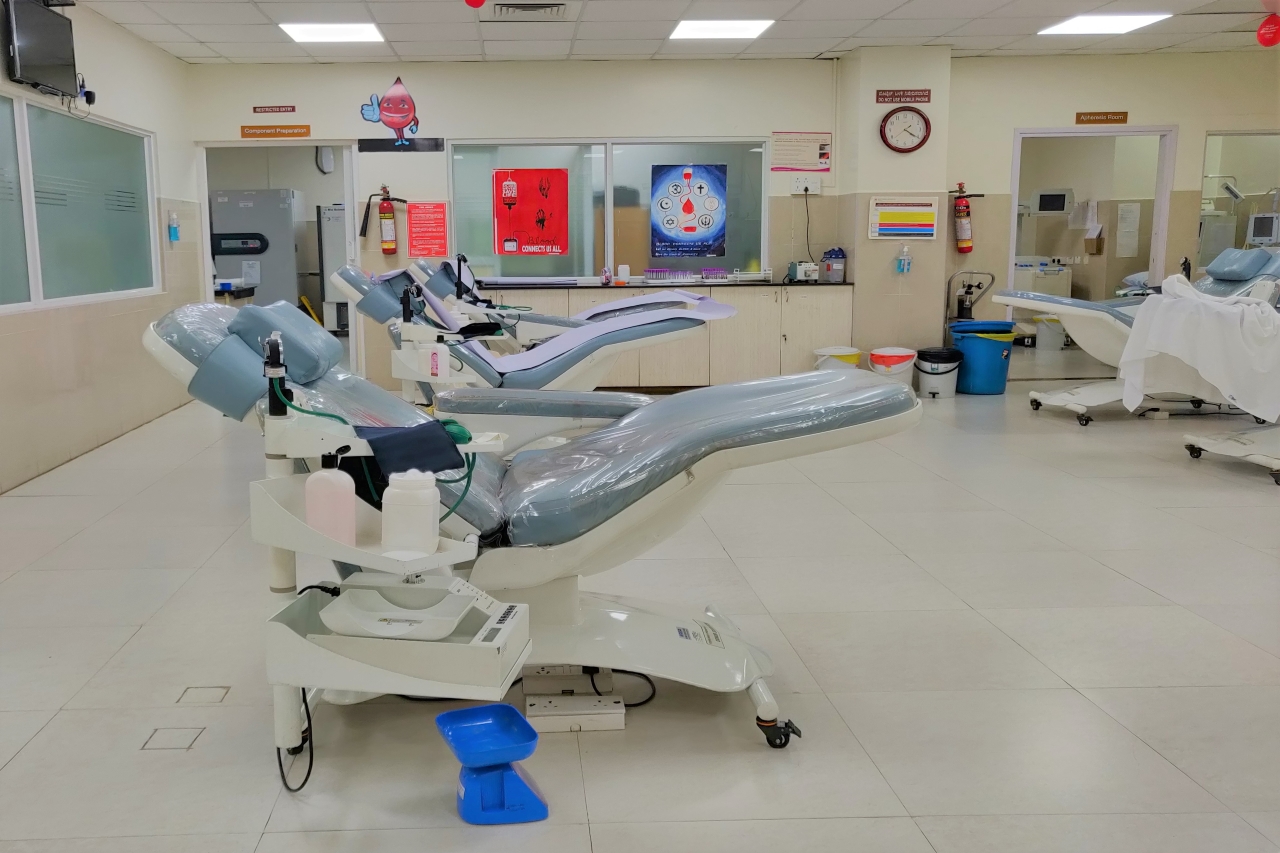
Diagnostic and therapeutic laboratory:
· Thromboelastography (TEG) and Heparinase TEG available for monitoring of coagulation abnormalities
· Facility for therapeutic apheresis including plasmapheresis, granulocyte apheresis, and stem cell apheresis
· Diagnostic facility for Heparin-Induced Thrombocytopenia, Paroxysmal Nocturnal Haemoglobinuria, and Thrombotic Microangiopathy
· Platelet Rich Fibrin and Platelet Rich Plasma for prolotherapy
· Hepatitis E screening and molecular characterization among blood donors
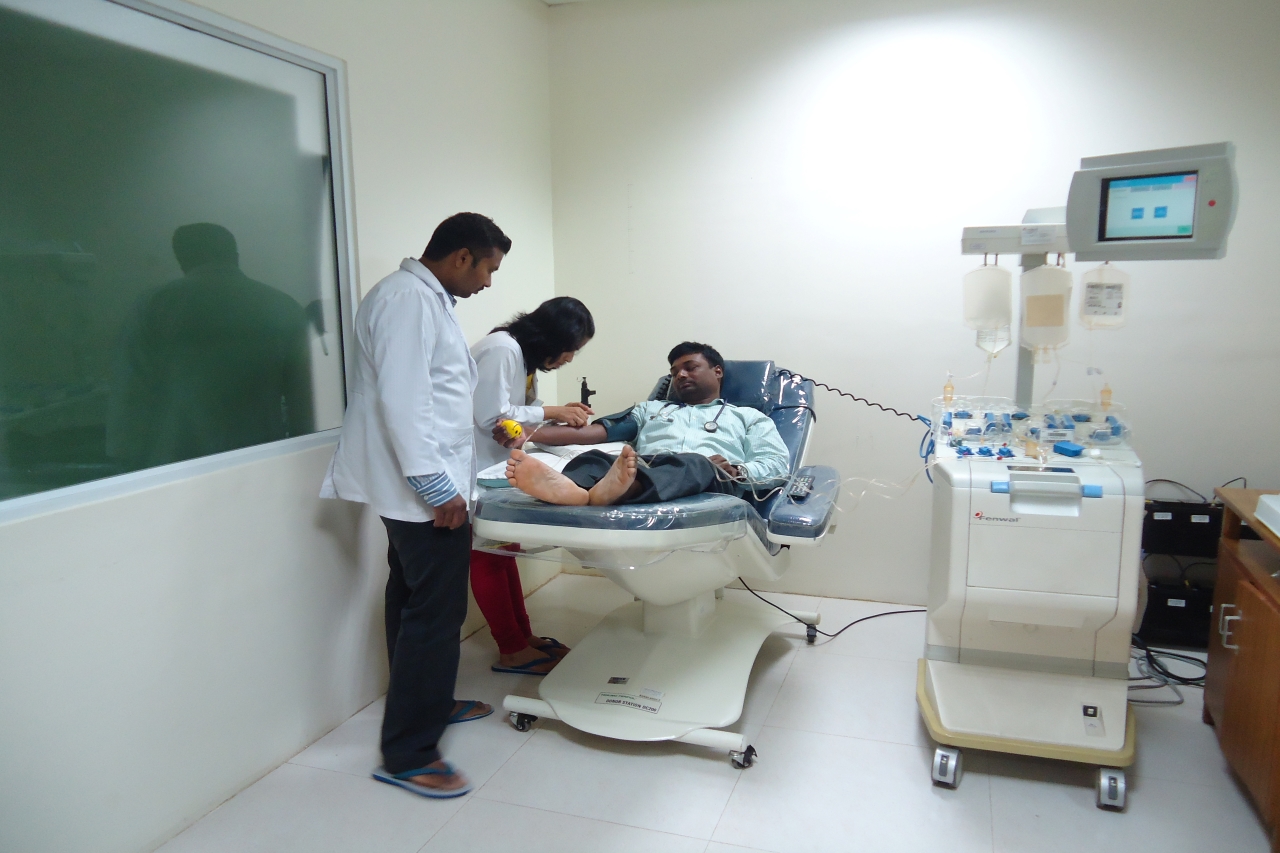
PMR Laboratory
Physical Medicine & rehabilitation department has Artificial Limb Center (ALC) is one of the oldest in the country. It was formed to provide high-quality prostheses and orthoses to patients. There are sixteen trained prosthetists, orthotists, and technicians working to manufacture high-quality custom-made prostheses and orthoses for adults and children. Modern techniques, materials, and machines are employed to reduce errors and improve efficiency. The center provides various types of lower limb and upper limb prostheses for persons with limb amputations and upper limb, lower limb, and spinal orthoses. It also dispenses various readymade orthoses and assistive devices like wheelchairs, walkers, crutches, etc. A 3D printer has been procured, which is used to manufacture hand splints and splints for children. It helps in error-free manufacturing and reduced time of delivery. The center also undertakes repairs of various orthoses and prostheses. It is easily accessible for persons with disabilities and other patients alike.
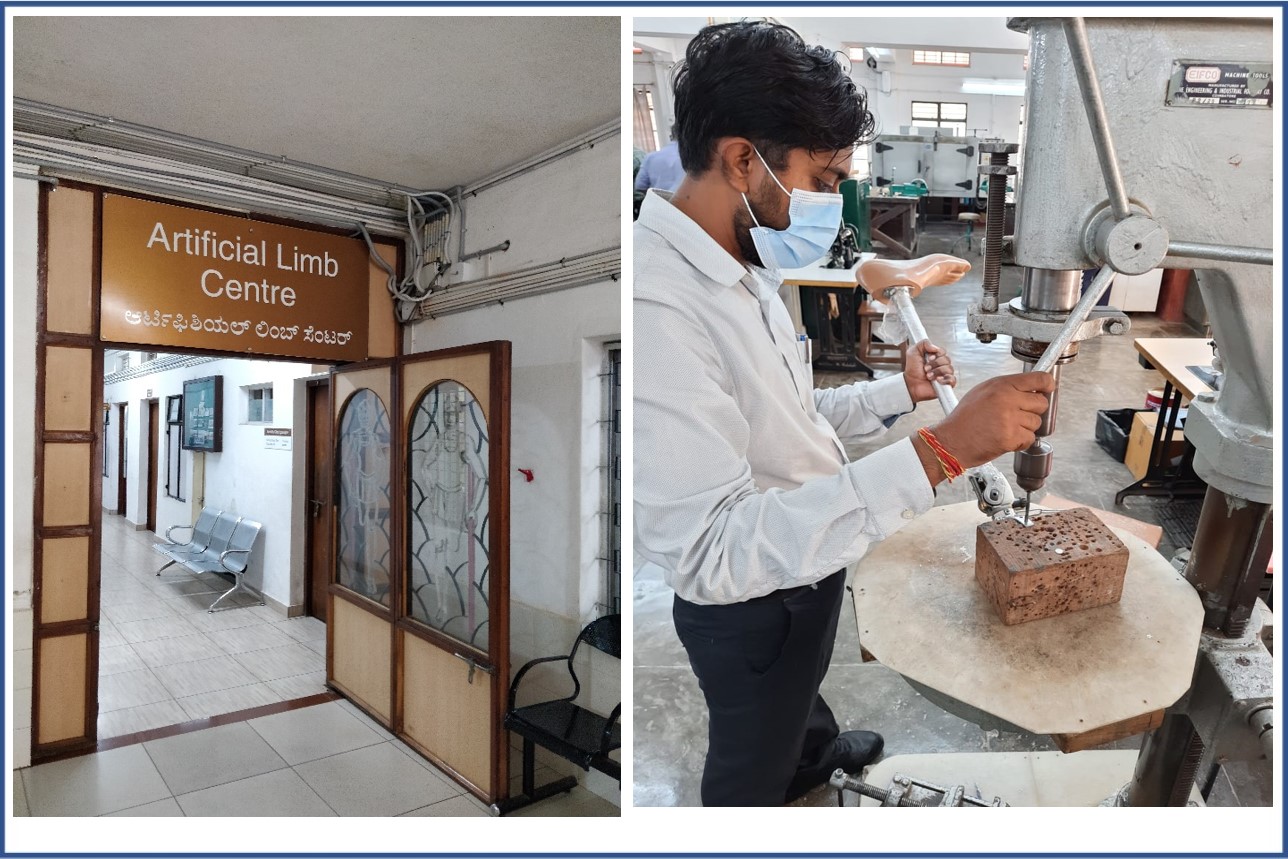
Gastroenterology Research Laboratory
Gastroenterology department research focuses primarily on Inflammatory Bowel Disease, Pancreatitis, Cirrhosis of the Liver, and Hepatitis. Our department is equipped with some basic facilities for sample preparation, processing, and storage of various biological samples like urine, blood, tissue, etc., Faculties from gastroenterology are involved in various collaborative research with different institutes of MAHE such as the School of Life sciences, Manipal College of Pharmaceutical Sciences, Manipal Institute of Virology, etc.,
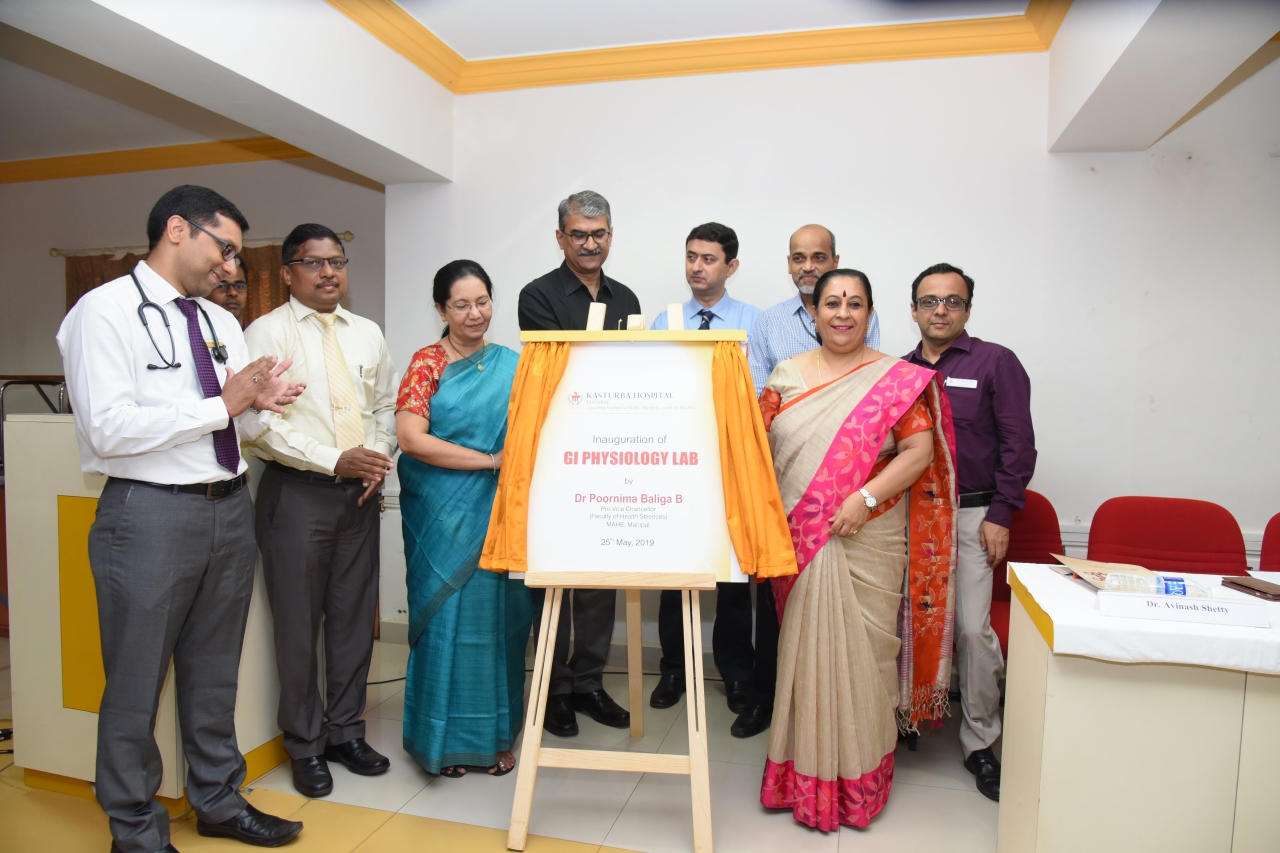
Cardiology Lab
CATH Lab:
Cardiac catheterization laboratory KMC Manipal is a state of art lab providing 24*7 facilities to patients of coastal and northern Karnataka, Goa, and Kerala. We currently have two laboratories of Philips FD 20 and FD 10. The catheterization lab is also equipped with the latest technologies like the FFR console, Volcani IVUS console, OCT console, and IABP. All complex interventions like coronary angioplasties (including left main intervention, bifurcation angioplasties, CTO and imaging-guided interventions), peripheral angioplasty, devise implantation, EP study and radiofrequency ablation, valvotomies, device closures, cath study, IVC filter implantation, TAVR, TEVAR, and other procedures are routinely performed.
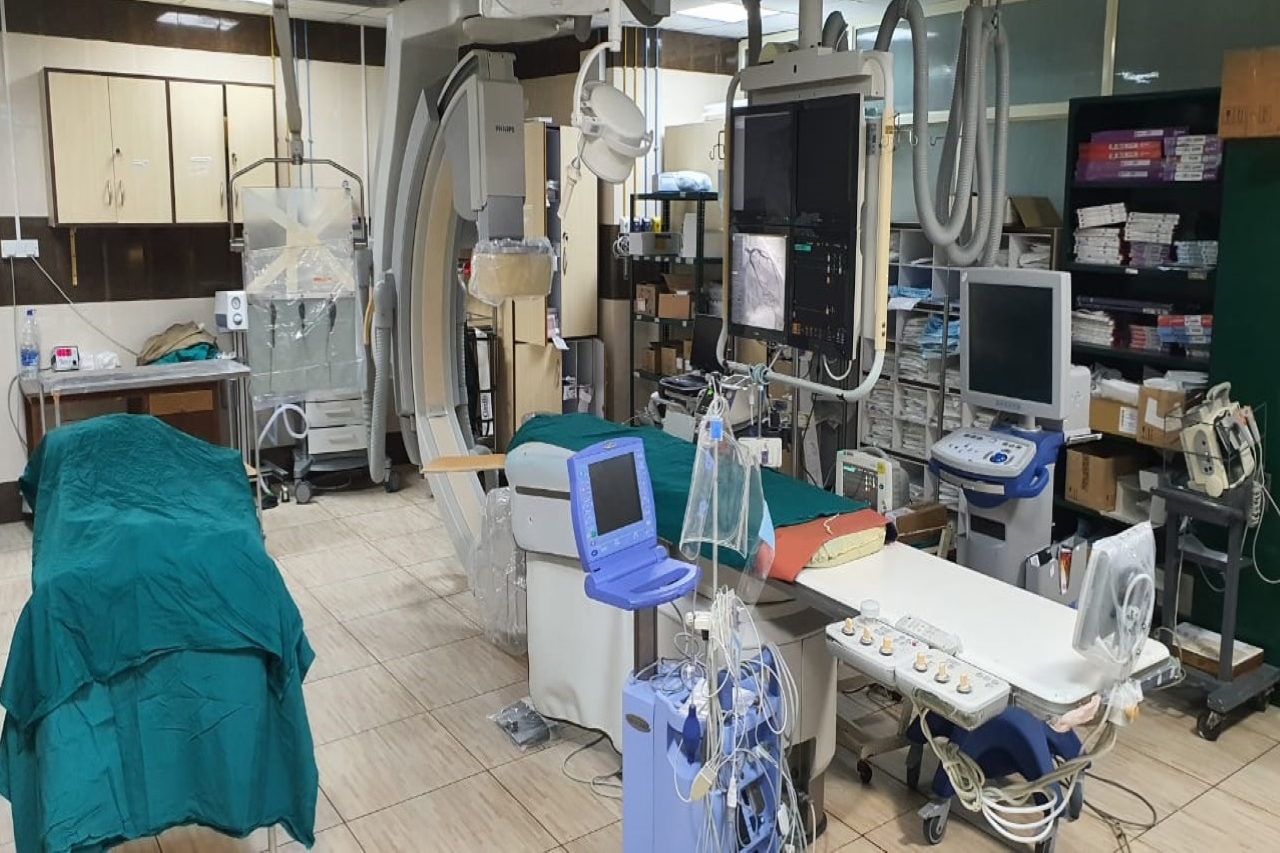
Medical Genetics Lab
Research lab:
Medical Genetics department has a research laboratory equipped with facilities for molecular and cell biology experiments. In addition, we have laboratories for Drosophila (fruit fly) and mammalian cell culture. Primarily these are used by researchers investigating the genetic and molecular mechanisms underlying rare monogenic diseases. In addition, they are used for the academic training of students pursuing MSc. in Genetic counseling and DM in Medical Genetics in the Department.
Diagnostics lab:
Diagnostics lab in Medical Genetics is one of the Kasturba Hospital Laboratory Services. We are accredited by NABL and provide state-of-the-art genomic solutions. Our services include testing from a single nucleotide variant to an entire exome (exome sequencing). We also provide various deletion and duplication analyses based on MLPA. We offer rapid prenatal testing for aneuploidies and targeted variant analysis for fetuses.
Perinatal services lab:
We provide fetal autopsy for pregnancy losses as a routine diagnostic service since 2008. Evaluation of a fetus helps in obtaining a diagnosis in the affected pregnancies. An accurate diagnosis guides us to provide appropriate genetic counseling to the families about the risk of recurrence in subsequent pregnancies and offering a prenatal diagnosis.
Fetes and placenta can be sent in normal saline within 18 hours or in 10% formalin in case there is a delay. Please send 1-2 inches of the umbilical cord in saline always for genetic/DNA testing.
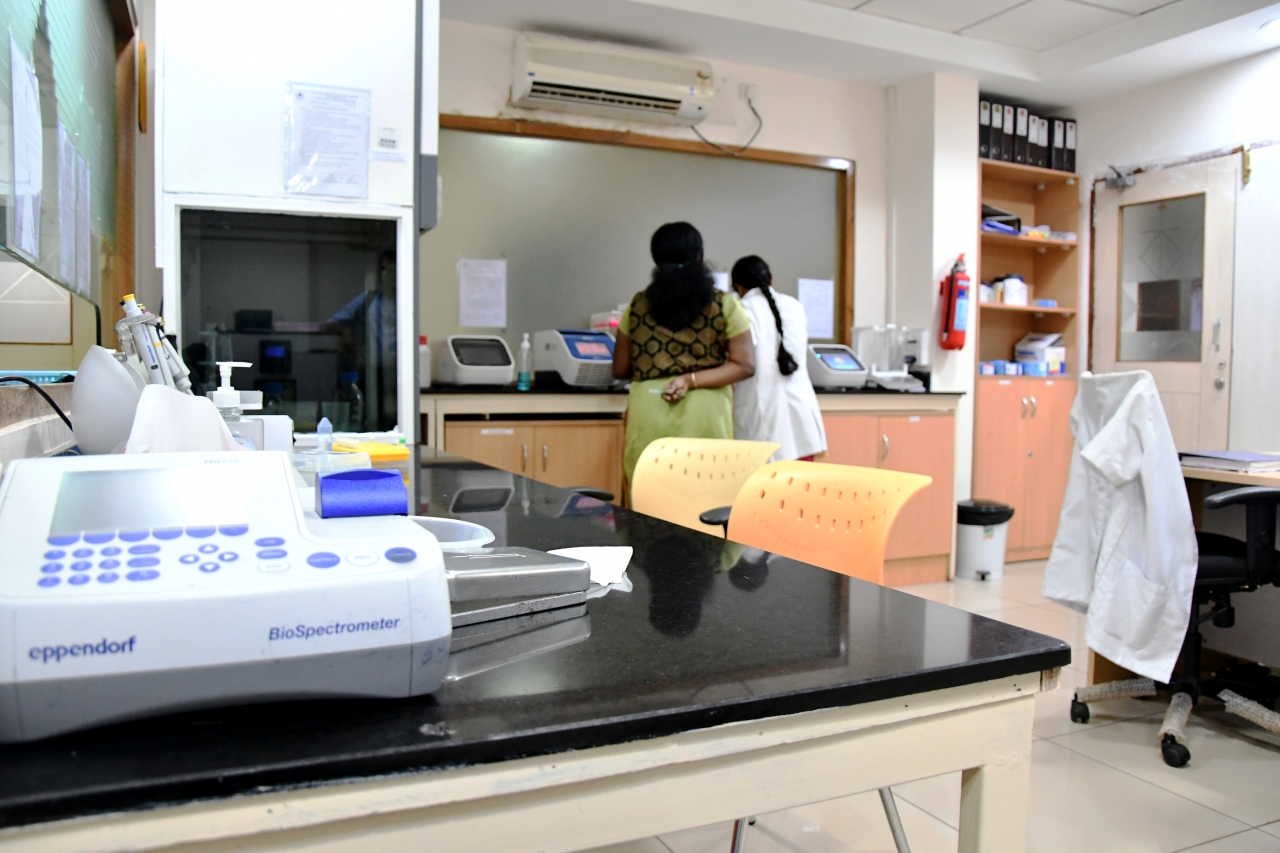
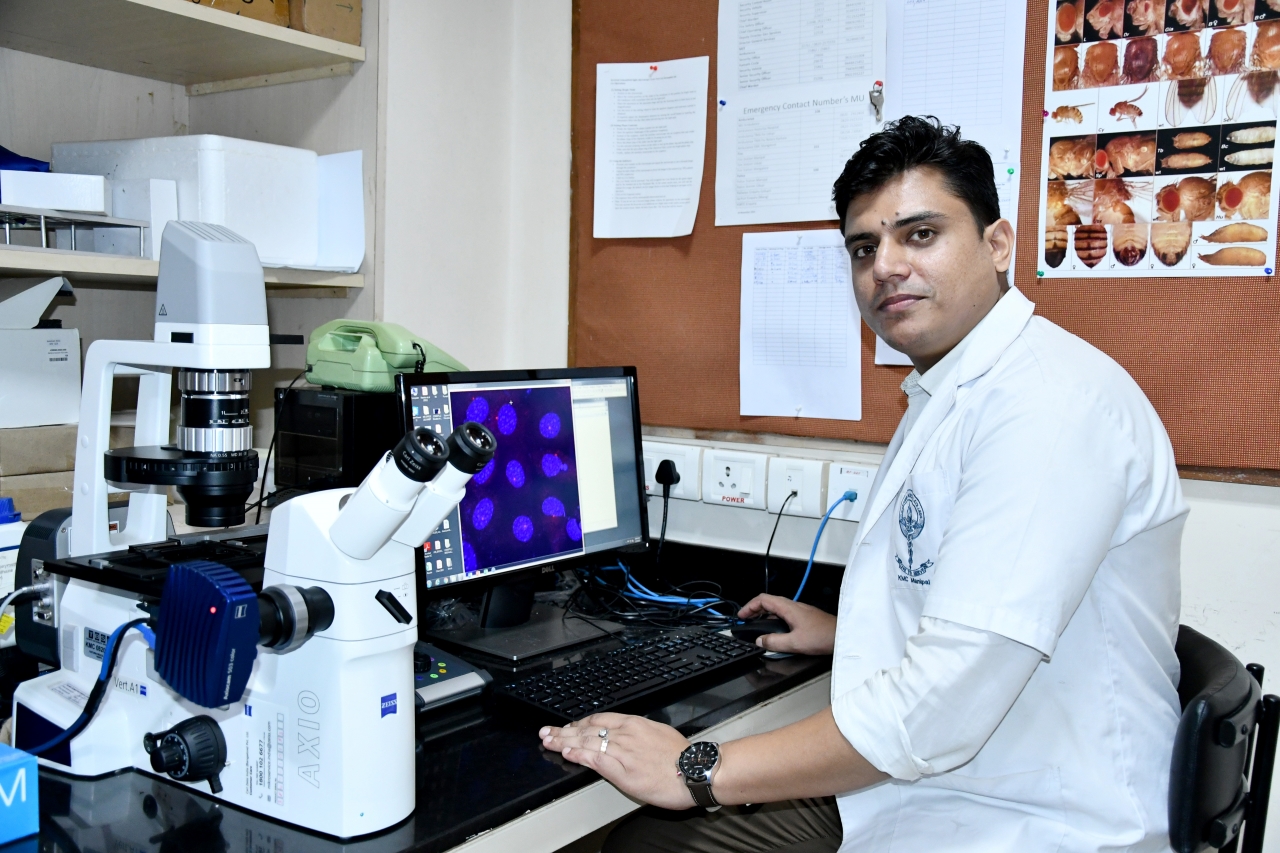
Infectious Disease Lab
The research laboratory in the Department of Infectious Diseases primarily focuses on Tropical Infections. Currently, the ongoing research projects are on Scrub typhus, Malaria, HIV, and Tuberculosis. We have 2 full-time Ph.D. students pursuing their research work on Scrub typhus and Malaria at the Department of Infectious Diseases. Our laboratory is equipped with instruments for sample processing, storage, microscopy, rapid diagnostic assays for infectious pathogens, and hemozoin-based assay for malaria.
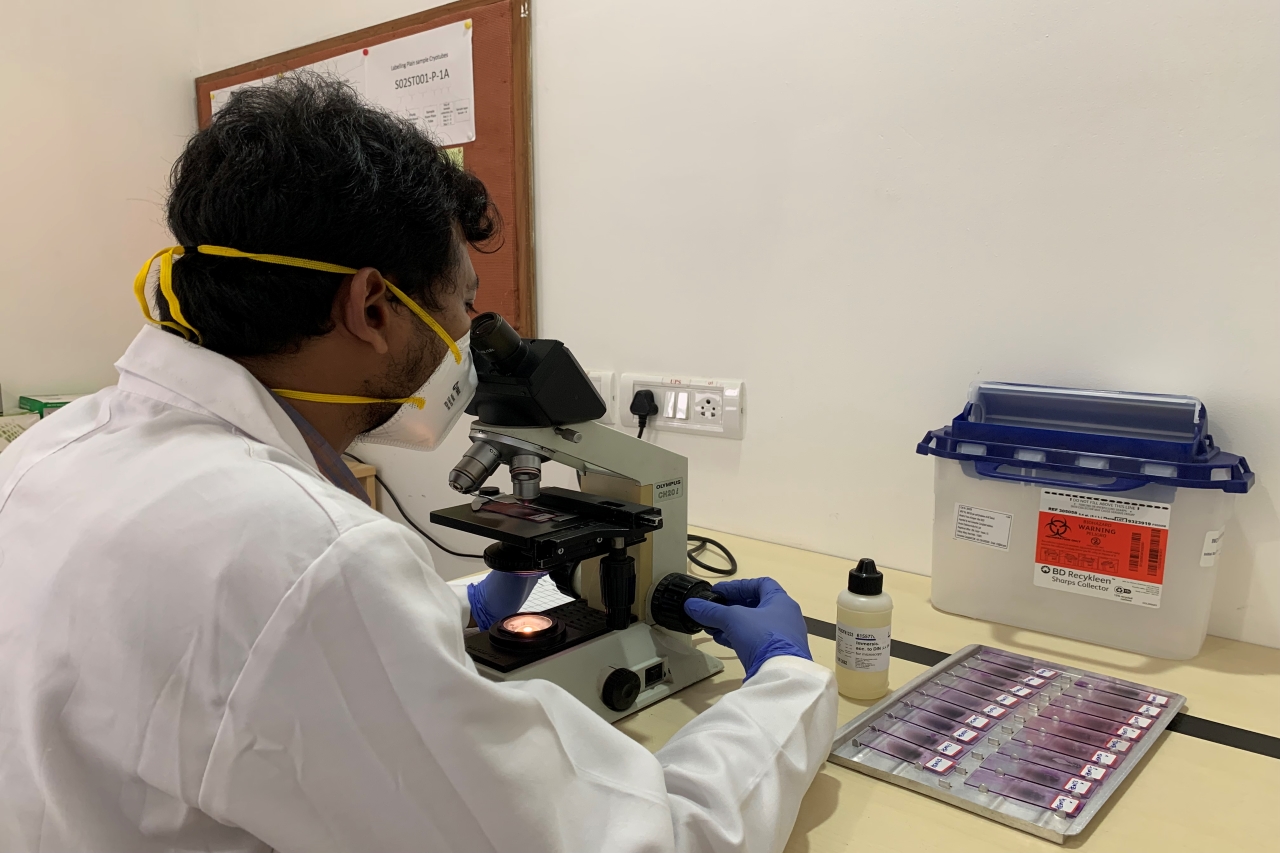
Reproductive Medicine & Surgery Lab
Manipal Assisted Reproduction Centre (MARC) has been offering a wide range of treatment programs for sub fertile couples seeking assisted conception. It is backed by the experience of expert doctors and scientists who have taken specialized training abroad and have been working with subfertility problems since 1990. The pioneering technological improvements make the department one of the most advanced centers for the treatment of infertility in India.
The center has a fully equipped andrology laboratory for male subfertility evaluation and semen banking for short-term and long-term storage. Embryology laboratory with all modern facilities including micromanipulation and laser hatching is another highlight of the center.
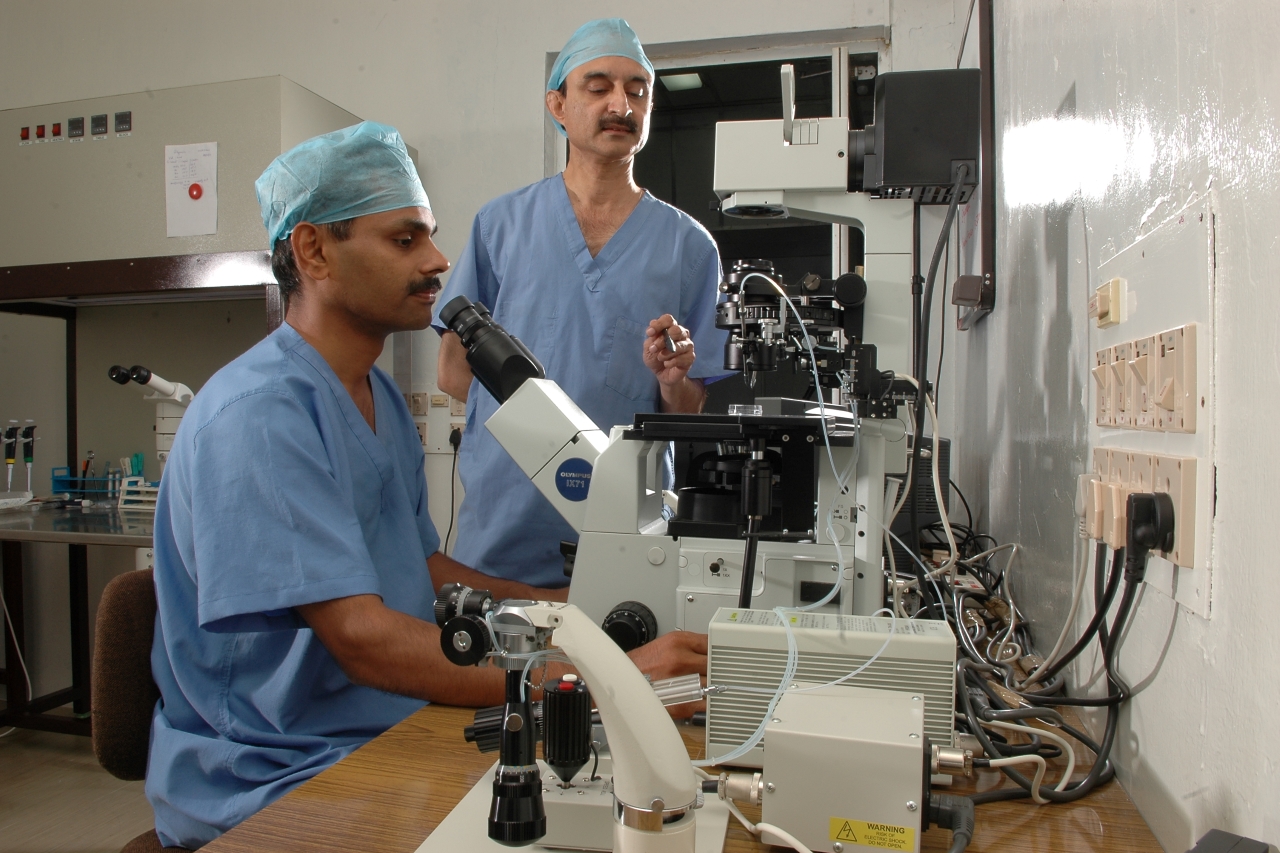
Clinical Embryology Lab
The department of Clinical Embryology is one of the top centers in Asia for advanced training and research in the field of fertility in general and embryology in specific. The mandate of research is the study of fertility and reproduction through experimental and clinical approaches. The clinical wing of the department treats approximately 10000 infertile couples every year and offers all modern assisted conception technologies, including Preimplantation Genetic Diagnosis (PGD), and fertility preservation for children and adults diagnosed with cancer. Besides providing top-clinical care, the center is also researching understanding the pathophysiological aspects underlying infertility. The department has received several research grants from national and international funding agencies and has active collaborations with the world's leading universities and institutes in Europe and the USA. First of its kind in the country, the center for fertility preservation, which's part of the department, along with its partners Oncofertility Consortium in the USA and the University of Muenster in Germany, offers fertility preservation services to cancer affected children and young adults. Apart from established doctoral and postdoctoral training programs, the department also offers customized embryology training for students, embryologists, medical doctors to empower them to undertake clinical and research activities at their institutes.
